#Alexander the Great's funeral procession
Note
Hello Dr.Reames. May I ask your opinion about why Alexander waited such a long time to take the funeral? (I suppose several months are a long time?) I remember reading (if I remember correctly) that the ancient Greeks had funerals within a few days after death. Did Macedonians do the same? Is it common for Macedonians to keep bodies for months before funerals? Or is there any other example like this? I know it took a while to build burial rites, but didn’t the ancient Greek culture believe that the shade can’t go to the other world until the funeral had been taken and consider it not as a good thing? According to the historical sources I think it is very probably that Alexander is a believer of these kinds of things so wouldn’t he afraid that Hephaistion’s shade would be unhappy for the delay of the funeral?(I’m sorry for my poor written English and hope you will understand it~)Love you!!!
It was purely practical.
Alexander wanted Hephaistion's funeral and memorial to be in Babylon, as ATG had begun to consider it the capital of his new "Asian" empire (that Hephaistion would have overseen as Chiliarch). As he (apparently) had Egyptians present who could embalm Hephaistion's body, It allowed him to put off the actual funeral. But he may very well have conducted certain rites for the dead in the interim.
While yes, in 'normal' circumstances, swift burial rites were preferred, usually by the third day, we know of plenty of exceptions in Greek history, particularly when it came to military campaigns.
Alexander's mummy itself wouldn't begin its trek back to Macedonia for almost 2 years! It took that long for the ridiculously expensive/elaborate hearse to be constructed. The body's trek back to Aegae in Macedonia was to have been a little like the Robert Kennedy's Funeral Train from New York to DC back in '68. It allowed the nation to grieve his assassination. Abe Lincoln had a similar funeral train from DC to Illinois. People flocked to see it. That's what happened to Alexander's funeral "train."
Well, at least until Ptolemy hijacked it. Ha. But he did hijack it because of the power of the body itself, intending to set it up as a place of pilgrimage. That's what Alexander had apparently intended for Hephaistion's memorial too, which is why he wanted it to be in Babylon, which he anticipated would become a central hub. Obviously, none of that happened.
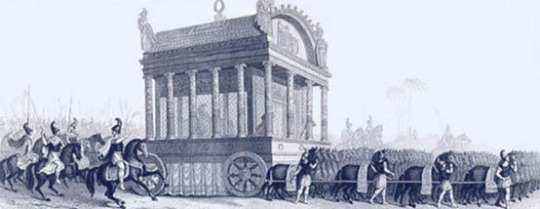
#asks#Hephaistion#Hephaestion#Alexander the Great#Hephaestion's funeral#Alexander the Great's funeral procession
9 notes
·
View notes
Note
political marriage Jercy AU
When Juno announces exactly how the Romans and Greeks will consolidate peace between themselves, Jason wants to fall at her feet to beg or laugh hysterically and ask who came up with such a funny joke.
Next to him, Percy turns pale and his legs weaken, Annabeth holds him gently by grabbing his elbow.
Marriage, a divine marriage fixed between souls... the marriage of the leaders of both camps, the marriage of the most powerful demigods, the marriage of Jason Alexander Grace and Perseus Dylan Jackson.
Venus is smiling at Jason, her smile is bright, dazzlingly beautiful, her hair is silky black curls, and her eyes are the color of sea waves.
You didn't dare dream about it, did you? She asks, teasingly desirable and looking like Percy.
Jason is bad at feelings and he experiences them at the most inopportune terrible moments - hunger when Thalia is sick, the desire to get maternal affection when Beryl is too drunk, falling in love when it's his best friend who just got out of the real fucking hell, broke up with his girlfriend, because their relationship is not the healthiest coping mechanism and just wants to go to his mother and live with her like a mere mortal.
Jason is in love and feels terribly guilty.
Percy is tired, he just wants peace and his mom.
This is such an interesting take on it and I like it a lot. Perce taking to the marriage as a chore initially, his duty has been to accept his roles in missions even if he does so backhandedly. He doesn’t go easily into it, but does all the same. He has no energy left to spit at the feet of the person who even raised the subject to the level he gazed upon.
Jason however takes it on like he usually does, silencing his complaints and just taking it like a good prince like soldier should. Sure, maybe it is the most hysterical joke his life has played on him, but what’s another one to the pile. He’s more worried about his friend whose mental health just took a dive into the deep end as the announcement. Percy being subdued is not a look anyone likes to see on him. And to make it worse, the feelings Jason has for Percy just makes the way Percy looks now feel all that much worse. Jason feels ill when he can visibly see the sick feeling on Percy’s face.
The following days just have this dreadful, sticky feeling to them. Percy is just a bitter husk and Jason is a sad puppy watching the person he loves look less than ecstatic at this new turn in their lives. And he gets sadder when their whole group grows quiet too, it’s like everyone is mourning but for what, it’s hard to tell.
Jason sitting in his pining and sadness, because he understands why the mood is so low, but marrying Percy isn’t a bad thing. He would be happy if it’d been done on better terms. But everyone is acting as if they’re soon to attend a funeral procession. He understands, but it doesn’t make him feel any better, any less rejected.
And Percy just lurks in the feeling, unable to break himself of the unannounced spell of silence he’s held especially toward Jason who’s just as much a victim of circumstance as he is. But could you blame him? He’s exhausted, he wants to live a normal life, go home to his mom and cry in her arms like he did when he was little. He escaped hell with Annabeth, their relationship severed from the sheer horrors they’d faced, from the evil he held within himself, and now he was forced into yet another plan of the gods. Forced into something he just can’t yet bring himself to accept. And he sees how his mood is affecting others, how it’s affecting Jason, but he can’t help but wallow in his self pity. He can’t help but to give himself one moment of utter weakness because this, after everything, is just too much. His wish for normalcy depleted to ash.
-
The idea is a lovely tragedy. It makes for great opportunity to fix broken bonds.
Thank you for send this to me :)))
#jercy#jason grace#hoo#percy jackson#pjo#pjo hoo toa#percy pjo#jason hoo#jason x percy#political marriage au#pawz replies#asks
27 notes
·
View notes
Photo
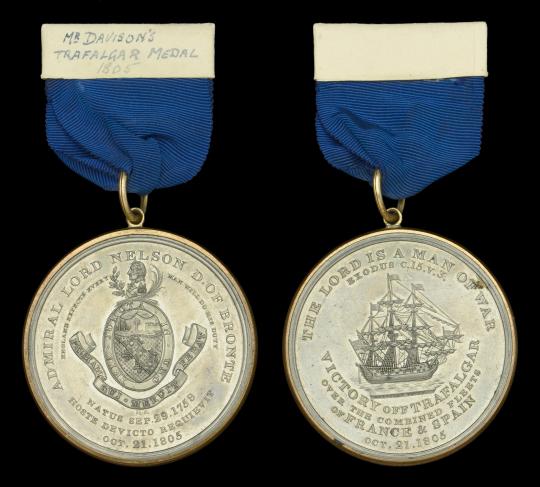
Alexander Davison’s pewter Medal for Trafalgar 1805
It is believed that copper-rimmed pewter medals commemorating Nelson and H.M.S. Victory (designed by T Halliday) were hastily commissioned by Alexander Davison, Nelson’s Agent, for award to the crew of H.M.S. Victory who took part in the battle and were in London at the time of Nelson’s State Funeral, with the intention that Victory’s crew members would wear them during the funeral ceremonies and the great procession.
50 notes
·
View notes
Photo

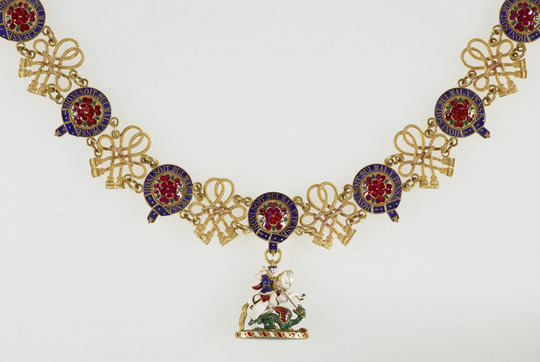
Emperor Alexander II of Russia’s investiture badge (Lesser George) of the Order of the Garter & collar and badge (Great George) of the Order of the Garter, 1867. (x)
Emperor Alexander II was invested 'with the Ensigns and Habit' of the Most Noble Order of the Garter in the Throne Room of Tsarskoe Selo on 28 July 1867 (NS). He was invested by George Henry Robert Charles, Earl Vane (later 5th Marquess of Londonderry), who had been appointed as Queen Victoria's Envoy Extraordinary to lead the Garter mission to St Petersburg.
The Earl was accompanied by the eight other members of the Mission - which included the future Duke of Marlborough, three officials of the College of Arms; Deputy Garter, Chester Herald and the Rouge Dragon Pursuivant of Arms, and Major General Lord Henry Percy and Major Christopher Charles Teesdale – both of whom had won the Victoria Cross during the Crimean War. The inclusion of two recipients of the Victoria Cross was not insignificant because part of the rationale to appoint the Emperor to the Order was to help heal the wounds of the conflict some 10 years earlier.
The insignia was supplied by Garrards. The cost of the insignia and other items, 3 silver gilt boxes, mantle, Garter Shield, seven velvet cushions with tassels (for the investiture ceremony), the silver underhabit, plume, materials for the banner in St George's Chapel, trunks for transportation, Garter ribbon and binding of the statutes came to £538-2–0.
The Mission left London on 18 July, arriving in St Petersburg on the 24th. The suite was received in Audience with the Emperor on 26 and 27 July. On the morning of the 28th they travelled in five royal state carriages with outriders and grooms in state liveries from the Alexander Palace to the Catherine Palace and were met by a guard of honour. They then processed to the Throne Room, with Major Teesdale bearing the hat, plume and star, Viscount Canterbury the collar, Lord Henry Percy the sword, the Marquess of Blandford the Mantle and cordon, George Adams (Rouge Dragon Pursuivant) the Garter, riband and George while the rest of the party carried the Queen's commission and a copy of the statutes of the Order.
The Emperor wore his Garter Insignia at the time of the marriage of his daughter Grand Duchess Marie Alexandrovna to Prince Alfred, Duke of Edinburgh, in January 1874 and during his subsequent visit to London in May that year. They were, in sadder times, to form part of the display of the Emperor's insignia at his funeral after his assassination in 1881. Following the funeral, the insignia was returned to London with the star and badge displayed at Queen Victoria's command at Windsor Castle. | The Royal Collection
50 notes
·
View notes
Text
Saints&Reading: Saturday, July 1, 2023
July 1st_June 18
St. John of Shanghai and San Francisco the Wonderworker (movable holiday on Saturday closest to June 19th).
SAINT JOHN OF SHANGAÏ AND SAN FRANCISCO (1966)

In honor of the June 2nd feast of the great hierarch, ascetic, and wonderworker, John Maximovich of Shangaï and San Francisco, we let Archpriest Peter Perekrestov, an eyewitness of the opening of St John’s coffin on October 12th, 1993, recounts the event.
Vladika John passed away in 1966 while visiting Seattle with the wonder-working Kursk Root Icon of the Mother of God. After the service, he went to his cell and was found reposed before the icon. The funeral was held in San Francisco, but not immediately, because it took a long time for all the bishops to assemble. Metropolitan Laurus (then Igumen Laurus) and Archbishop Averky (Taushev) traveled for three days by car from Jordanville - almost three thousand miles. Although Vladika John's body had not been embalmed, it showed no signs of decay before or after the funeral. San Francisco's Board of Supervisors had given the Holy Virgin Cathedral parish council special permission to bury the Archbishop within the city confines, under the church building. We used to have a storage room in the basement. This room was transformed into the sepulcher where Vladika John's remains were laid to rest.
People went to his tomb before the glorification, as with Blessed Xenia in St. Petersburg. Initially, they prayed for Vladika John, but then they started praying to him, leaving him their lists of names. And numerous miracles occurred. The veneration of Saint John and the process of his glorification began as a grassroots movement and was not one directed from above. His reverence was growing rapidly, and thus the question of his canonization arose relatively soon. However, it was a great miracle that a decision regarding his canonization was made.
At that time, the head of our Russian Church Abroad was Metropolitan Vitaly (Ustinov), and it is no secret that he had not been favorably disposed toward Archbishop John. As a result, Vladika Vitaly was less popular in San Francisco. Nevertheless, Archbishop Anthony (Medvedev), the ruling hierarch of the Western American Diocese, told me after returning from the Synod meeting in September 1993: "You won't believe what just happened. At the Synod meeting, I suggested that materials for the possible glorification of Archbishop John be collected, and Metropolitan Vitaly unexpectedly said: 'Let's glorify him'!"
After this turn of events, it was decided to uncover Vladika John's remains. Archbishop Anthony invited Archbishop Laurus, to whom he was very close and trusted, and several priests, including an archimandrite who used to be Archbishop John's leading acolyte. The keeper of the sepulcher was also invited.
For some reason, there are particular days when every single detail is remembered. Father Alexander Schmemann reflects on this in his diaries. We can forget details of very important days: our wedding or ordination days, but some days and moments are always remembered. We recall every fact: the weather and the color of people's clothing. For example, although I served with Archbishop Anthony (Medvedev) for twenty years, I remember only certain moments well. I can close my eyes and feel him sitting nearby, see him separating his Panagia and Cross on his chest, and clearly see his facial expression. In the same way, I remember the day when holy Vladika John's relics were opened: It was like a small Pascha.
Most of us have never opened a coffin after twenty-five years after the burial. From a human perspective, I felt trepidation and some reluctance before St. John's remains opened. I was a young priest and honestly couldn't say I felt too comfortable around dead bodies. At about 9:00 p.m., we went down to the sepulcher and began serving a Panikhida. Our wives and children knew about this. Although Vladika Anthony asked us to keep this a secret, we convinced him we could not keep this a secret from our wives. They would ask where we were going at that hour. Vladika Anthony then gave us his permission to tell them.
They were waiting for us at home with great anxiety. Several days before the opening of the relics, a small delegation had gone down to the sepulcher to investigate things. The board consisted of three clergymen, one of them being a carpenter. The casket was in an aboveground concrete sarcophagus. The delegation needed to know in advance how the extremely heavy cover of the coffin would be removed. Because of their efforts, when we went to open the remains, we knew what needed to be done. Two-by-fours, a crowbar, sheets, and other items had been prepared. We lifted the cover of the sarcophagus and saw a corroded metal casket under it. The coffin was covered by a bishop's mantle, which had been put there on the day of Archbishop John's funeral. The mantle was intact. Then the coffin was raised slightly with ropes, but it started to collapse because it had completely rusted through in many places. So we put the two-by-fours under the casket to support it. The next step was to open the casket lid.
The key to the lid had been kept by one hieromonk for more than twenty-five years. He approached the casket and solemnly put the key into the keyhole, but the lid would not open. It has rusted through, and the lock did not work. Then our protodeacon got down to business and tried to force open the lid with a crowbar. He was a very strong Russian and weighed around 375 pounds. However, Archbishop Anthony disapproved of such use of brutal force, believing it is not proper and pious to open the lid in such a manner, so he stopped the protodeacon, crossed himself, closed his eyes, and started reading the 50th Psalm.
I would like to step back momentarily and recall the events that led to this. When my wife and I were deciding whether or not to move to San Francisco, she was quite hesitant because we would be living very far from family. In the Russian Church Abroad, we do not have such a strict policy regarding clergy assignments and transfers as in Russia. Usually, a bishop will propose, and the priest can either agree or refuse. The quandary is that many of our priests have secular jobs, and not everyone can leave his job because not every parish can provide its clergy with a decent salary. So we went to San Francisco for a "scouting" trip. I had more superficial reasons for moving there. I thought of the grand cathedral, the numerous youth, the large Russian population, and the active parish school. But my wife was a bit skeptical about those things. We saw the city, got to meet some of the clergy, and, right before our departure, were invited by Vladika Anthony to his residence. Archbishop Anthony lived alone. He did not have a cell attendant or a driver. He usually used the city buses and always carried a briefcase with him. He even put his food purchases in that leather briefcase when he went shopping. The Archbishop greeted us at the door, sat us down, and started cooking everything himself. When the food was ready, he faced the icon corner and said the Lord's Prayer. My wife later remarked that she had never seen anyone reading "Our Father" in such a way. Vladika Anthony was not simply reading a prayer; he stood before the living God, addressing Him. There was no formal element in his prayer. When we left Archbishop Anthony's quarters, I asked my wife: "Well, Lena, what do you think?" she replied: "With a bishop like that, one can live and serve anywhere." That was the deciding factor for us regarding our move to California
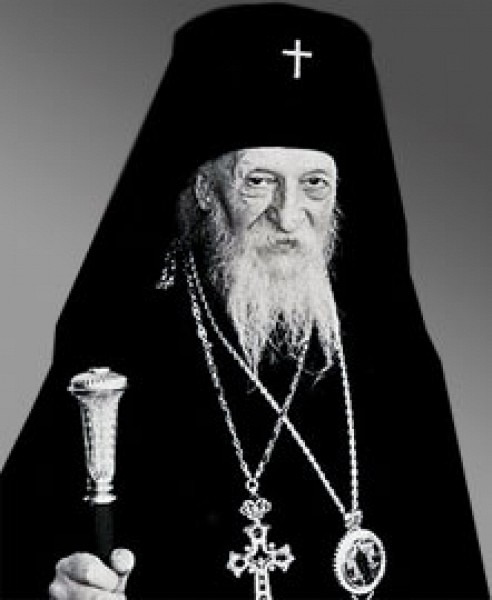
This same bishop was praying during the opening of St. John's relics. Vladika Anthony completed Psalm 50, took the lid, and quickly opened it. I believe we could not open the lid from the beginning because God wanted the relics to be uncovered by Archbishop Anthony, a man of high spiritual life and purity. The lid opened, and we glimpsed at St. John's vestments. Initially, they were white but now had become green. It seemed they were moldy. We then touched the vestments, which fell apart in our hands because of decomposition. When a priest is buried, his face is covered with an aer: the one used to wrap the Holy Gifts at the Liturgy. Such an aer was covering St. John's face. Archbishop Anthony crossed himself and raised the aer covering Vladika John's face. This was the moment when I saw Archbishop John's face for the first time. His face and body were intact - incorrupt - and we were looking at true relics.
Vladika Anthony appointed me as the photographer for this event. I was taking pictures with a film camera (this was in 1993). I ran out of the film and rushed home. All the lights were on in our apartment-it was like the Pascha. Although it was around midnight, my wife was waiting for me. I began saying loudly: "He is incorrupt! His relics are incorrupt!" I then grabbed some film and ran back to the sepulcher. Matushka started to phone others to share our joy. When I returned to the sepulcher, a sick boy was brought to the relics who was the son of one of our diocesan priests. Archbishop Anthony gave his blessing for the boy to touch the relics. And the boy was healed. Now he is entirely healthy, much taller than I, and plays college rugby. A wooden casket had been prepared in advance to replace the metal one that had rusted away. We placed the relics in the wooden coffin, closed it, and left the sepulcher praising God.
The preparations for the glorification were moving ahead quickly. New vestments were being sewn for St. John. We opened the relics again in several months to wash them and vest Vladika, but we needed to figure out how to do this. No reference book had detailed instructions on cleaning and preparing relics before a glorification service. Archbishop Anthony was searching all his books. He found some historical data on canonizations, including how St. Theodosy of Chernigov and St. Ioasaph of Belgorod were glorified by the Russian Orthodox Church. He also found some articles in the publication of The Church Herald and other old periodicals. There was some information there, but we had to figure out most things ourselves. In Russia, perestroika had only just begun, and the opening of relics was not yet widespread. There was nobody to ask. We washed St. John's relics using water, oil, and rosewater. Initially, his skin seemed light in color, almost white, but it turned a rather dark amber color after it was washed. I combed out his hair and beard (I even found several hairs in the comb afterward). We changed his vestments and left him in the sepulcher until 1994, when he was glorified on the day of his repose, July 2
St. John of Shanghai and San Francisco was glorified as follows: First, the relics were brought from the sepulcher to the cathedral proper and placed in the center of the church. A Panikhida was then served, the last one for Archbishop John. At the end of the Panikhida, an icon of St. John, wrapped in a cloth, was laid upon the closed reliquary. The Panikhida finished with the words: "May God bless and give him rest, and by his holy prayers have mercy on us." After the Panikhida, the All-Night Vigil began, at which the stichera (verses) to the new saint were sung. During the litya, when a list of saints is remembered, St. John was mentioned for the first time: "Our father among the saint's John, Archbishop of Shanghai and San Francisco the Wonderworker, whose glorification is presently taking place, and all the saints..." That Vigil was unforgettable!
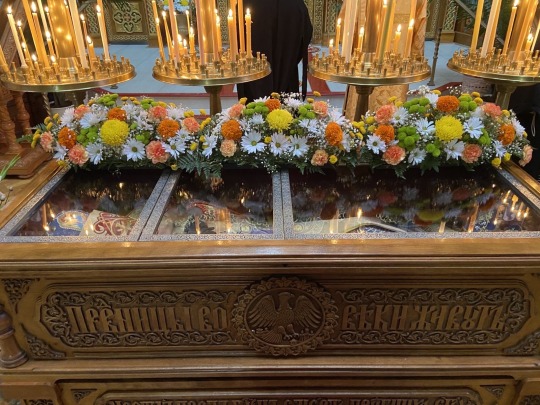
Saturday, July 1st, 2023. St Jon's relics has been brought out of its shrine and sits in the middle of the church from Thursday to Saturday
During the polyeleos, the Metropolitan came up to the reliquary, untied the icon of St. John on top of it, and two tall priests raised it on high so the faithful could see it. Afterward, the reliquary lid was lifted, and everyone could see St. John's relics. Immediately, all present did a full prostration, and the numerous clergy sang the Magnification to the new saint.
The glorification service was beautiful and genuinely conciliar, with the participation of numerous faithful. It was also one of the most important spiritual events in my life. And I will not cease to remark that our generation is highly blessed. Not one generation has received as many mercies from God as we have: We have not experienced wars and witnessed the rebirth of church life in Russia and the glorification of the New Martyrs and St. John. In addition to these blessings, we have seen and taken part in a tremendous and unprecedented miracle: the unification of the two parts of the Russian Church!
Archpriest Peter Perekrestov is currently archpriest of the Holy Virgin Cathedral “Joy of All Sorrows” of San Francisco, where St John Maximovich of Shanghaï and San Francisco reposes.
Source: Orthodox Christianity
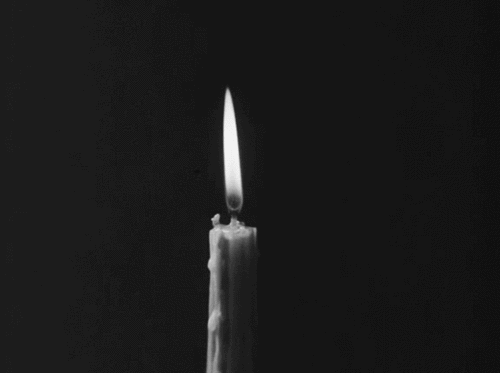
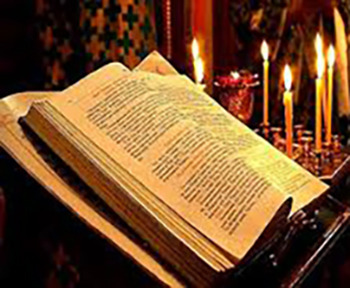
PHILIPPIANS 2:5-11
5 Let this mind be in you, which was also in Christ Jesus, 6 who, being in the form of God, did not consider it robbery to be equal with God, 7 but made Himself of no reputation, taking the form of a bondservant, and coming in the likeness of men. 8 And being found in appearance as a man, He humbled Himself. He became obedient to the point of death, even at the end of the cross. 9 Therefore God also has highly exalted Him and given Him the name which is above every name, 10 that at the name of Jesus, every knee should bow, of those in heaven, and of those on earth, and of those under the earth, 11 and that every tongue should confess that Jesus Christ is Lord, to the glory of God the Father.
LUKE 10:38-42; 11:27-28
38 Now it happened as they went that He entered a certain village, and a confident woman named Martha welcomed Him into her house. 39 And she had a sister called Mary, who also sat at Jesus' feet and heard His word. 40 But Martha was distracted with much serving, and she approached Him and said, "Lord, do You not care that my sister has left me to serve alone? Therefore tell her to help me." 41 And Jesus answered and said to her, "Martha, Martha, you are worried and troubled about many things. 42 But one thing is needed, and Mary has chosen that good part, which will not be taken away from her. 27 And it happened, as He spoke these things, that a certain woman from the crowd raised her voice and said to Him, "Blessed is the womb that bore You, and the breasts which nursed You!" 28 But He said, "More than that, blessed are those who hear the word of God and keep it!"
#orthodoxy#orthodoxchristianity easternorthodoxchurch originofchristianity spirituality holyscriptures gospel bible wisdom
2 notes
·
View notes
Text
July 2023 Book Club Picks

The Absolutely True Diary of a Part-Time Indian by Sherman Alexie: Arnold "Junior" Cloud is a budding cartoonist living on the Spokane Indian Reservation. Junior has seen the harsh effects of rez life on his family and friends, and is determined to take his future into his own hands, deciding to enroll in an all-white school, where the only other Indian is the football mascot. As Junior navigates first love, racial identity, friendship, and heartbreaking tragedy, he chronicles it all in his diary, along with hilarious and poignant artistic renditions of the chaos unfolding around him.
Beatrice Goes to Brighton by Marion Chesney: Recent widow Lady Beatrice Marsham has finally been freed from a miserable marriage...only for her money-hungry parents to start scheming to saddle her with a new, equally-awful husband. Fleeing to Brighton, Beatrice meets Miss Hannah Pym, the famous traveling matchmaker, on the coach, and Hannah becomes determined to strike Beatrice a proper, happy match. Lord Alistair Munro seems like a perfect candidate...until it becomes clear he believes the slanderous gossip that Lady Beatrice is a heartless flirt. But the Brighton air - and Hannah's own clever scheming - may work its magic on the prospective couple.
Mort by Terry Pratchett: Death comes for everyone eventually. And today, he's come for Mort with an offer he can't refuse. Mort needs a job, and the apprenticeship sounds like a sweet deal - free food, lodging, and travel. All his tools are provided (he only really needs one). And there's no need to take time off for family funerals. But as Mort settles into his new job, he realizes there are several drawbacks to working for the Reaper Man...namely, it's not exactly great for your love life.
The New Jim Crow: Mass Incarceration in the Age of Colorblindness by Michelle Alexander: With the election of Barack Obama in 2008, many Americans were quick to claim that the country had entered a "post-racial" era, truly achieving the ideal that we judged not by skin color, but by character content. Michelle Alexander's research argues that is most certainly not the case, since the majority of black men in America have been stripped of freedom and rights by the system of mass incarceration - either behind bars, or labeled felons for life. Although slavery and Jim Crow laws have been officially wiped from the books, America has merely replaced them with something far more insidious - for although the system overwhelmingly targets black men, its lack of overtly racist language allows it to flourish behind a smokescreen of "colorblindness".
Hollow by Shannon Watters: Isabella "Izzy" Crane has just moved to the legendary Sleepy Hollow. Yes, that Sleepy Hollow...which the townspeople will not let anyone forget, especially not resident town darling Vicky Van Tassel, who's starting to crack under the pressure of being a local celebrity. Izzy is a breath of fresh air for Vicky, as Izzy doesn't buy into the local obsession with the Irving story...until one night she sees the infamous Headless Horseman come charging out of the woods. As strange accidents begin befalling Vicky, Izzy becomes determined to find out the truth of the Headless Horseman, and potentially save Vicky's life in the process.
#book club#july 2023#the absolutely true diary of a part time indian#sherman alexie#beatrice goes to brighton#marion chesney#mort#terry pratchett#the new jim crow#michelle alexander#hollow#shannon watters
0 notes
Photo

As an altar server at St Francis of Assisi Parish, Oakville, MO in 6th/7th/8th grades a great joy was when asked to serve for one of the friars at the Monastery of St Clare of the Immaculate Conception also in Oakville. I only spoke with the Poor Clare Nun who served me breakfast. Two days prior to her death, the Pope confirmed that Clare’s rule would serve as the governing rule for her Order. Her remains were interred at the chapel of San Giorgio while a church to hold her remains was constructed. At her funeral, Pope Innocent IV insisted the friars perform the Office for the Virgin Saints as opposed to the Office for the Dead. This move by Pope Innocent ensured that the canonization process for Clare would begin shortly after her funeral. Pope Innocent was cautioned by multiple advisors against having the Office for the Virgin Saints performed at Clare’s funeral. The most vocal of these advisors was Cardinal Raynaldus who would later become Pope Alexander IV, who in 2 years' time would canonize Clare. At Pope Innocent’s request, the canonization process for Clare began immediately. While the whole process took 2 years, the examination of Clare’s miracles took just 6 days. On 26 September 1255, Pope Alexander IV canonized Clare as Saint Clare of Assisi. Some 600 years later in 1872, Saint Clare’s relics were transferred to a newly constructed shrine in the crypt of the Basilica of Saint Clare, where her relics can still be venerated today. St. Clare was designated as the patron saint of television in 1958 by Pope Pius XII because when St. Clare was very ill, she could not attend mass and was reportedly able to see and hear it on the wall in her room. Her feast day is August 11. She is also the patroness of eye disease, goldsmiths, & laundry. Clare is often pictured carrying a monstrance or pyx, to commemorate the time she warded off the soldiers at the gates of her convent with the Blessed Sacrament. https://www.instagram.com/p/ChHABh-uFXN/?igshid=NGJjMDIxMWI=
1 note
·
View note
Text
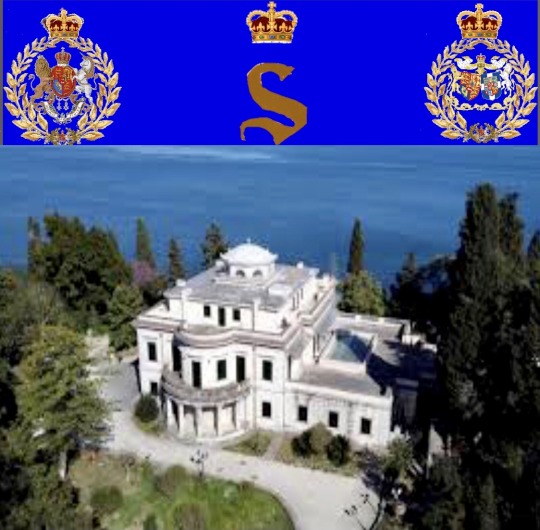
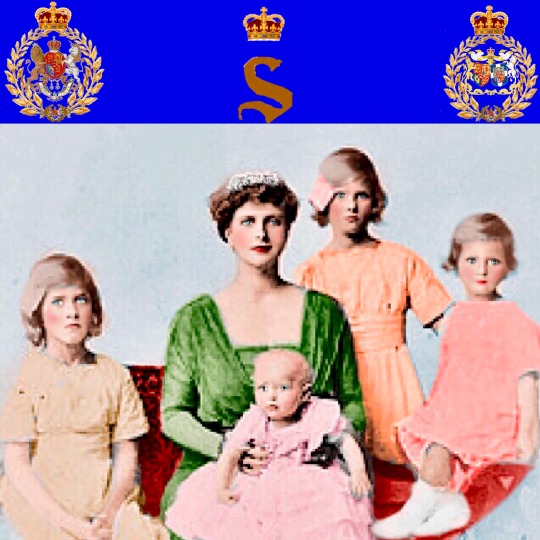
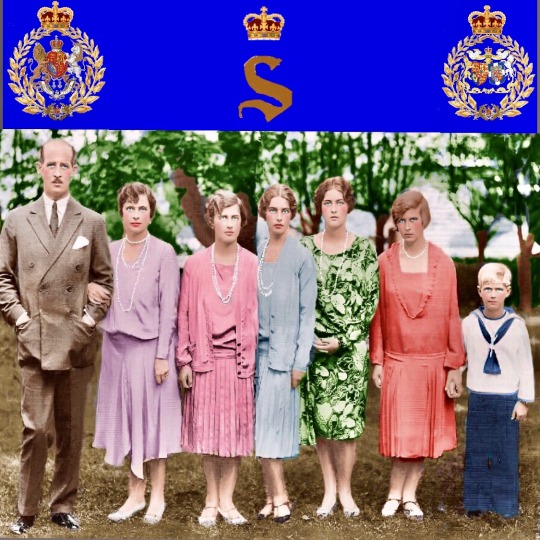
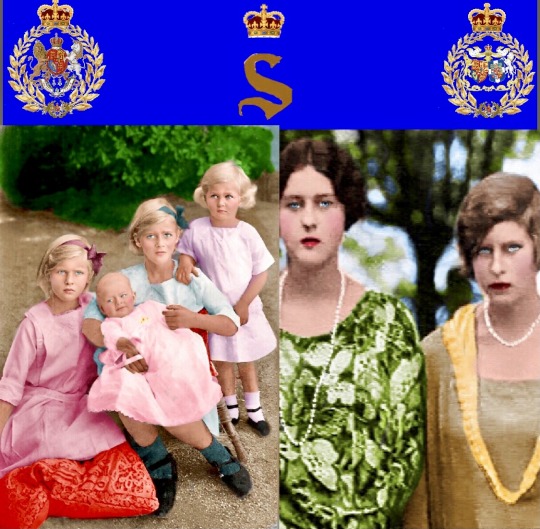
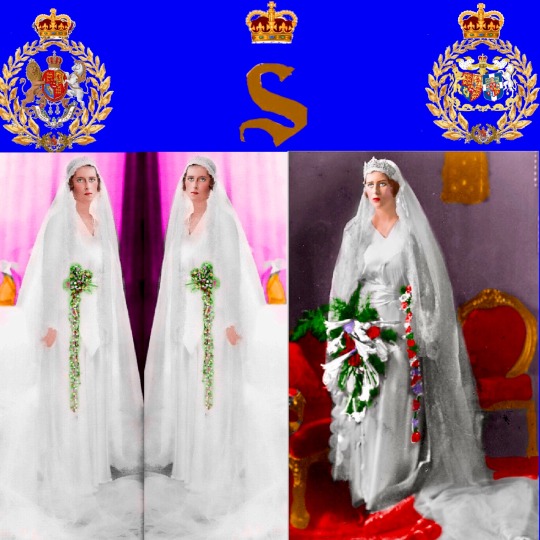
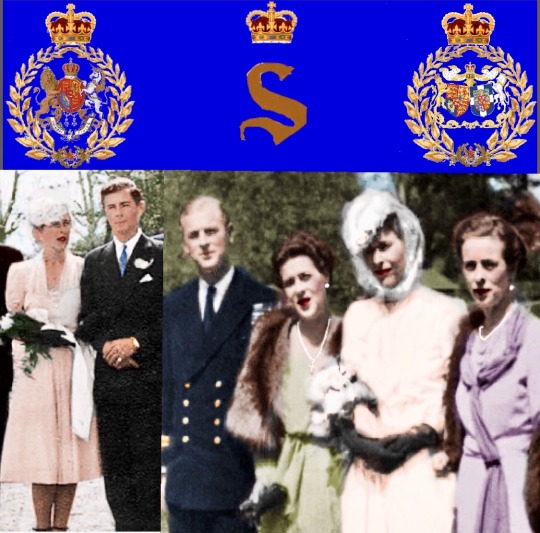
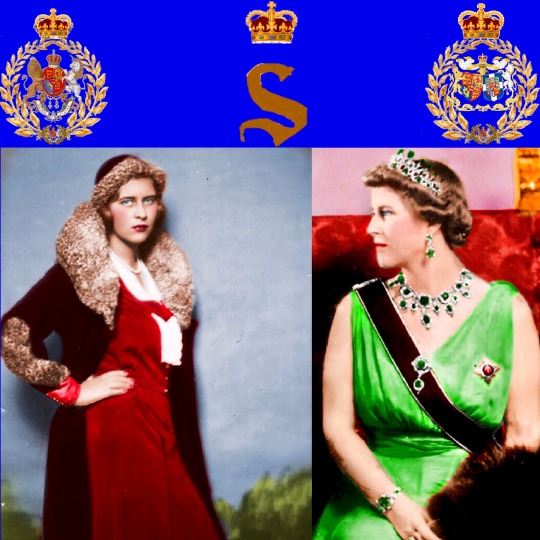
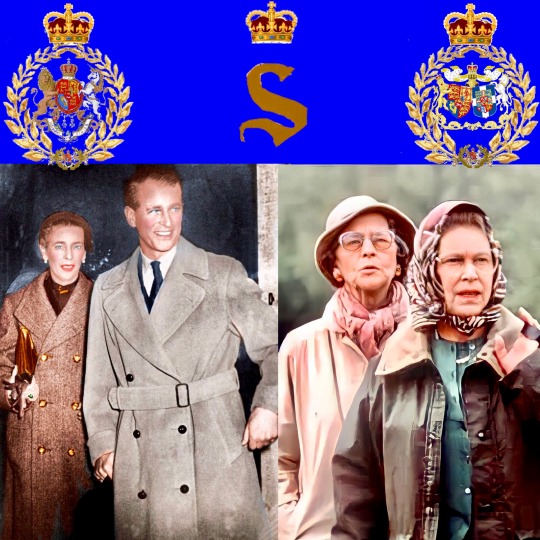
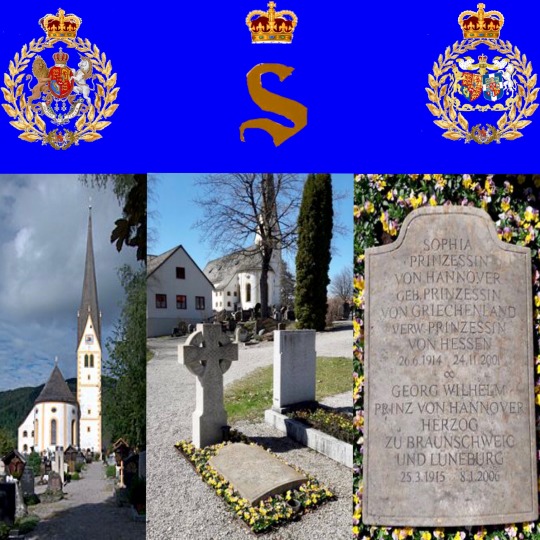
Last Wednesday was 20 years since the death of HRH Princess Sophie of Greece, Denmark , Hesse-Kassel and Hannover in 24–11–2001
Princess Sophie of Greece and Denmark was born on the 26th of June, 1914 in Mon Repos the Greek Royal Estate in Corfu which was left to Her Father Prince Andreas
(one of four sons of King George I of Greece and Grand Duchess Olga Constantinovna of Russia ) in King George’s I will .
(1st Collage)
She was youngest daughter of Prince Andrew of Greece and Princess Alice of Battenberg, she was the sister of Princess Margarita (later Princess of Hohenlohe-Langenburg), Princess Cecile (later Grand Duchess of Hesse), Princess Theodora (later Margravine of Baden), and Prince Phillip (the Duke of Edinburgh).
(2nd,3rd,4th Collage)
Her cousins include King George, King Alexander, and King Paul of Greece, Queen Helen of Romania, Princess Irene, Duchess of Aosta, Princess Marina, Duchess of Kent, Princess Olga of Yugoslavia, Princess Eugenie of Greece, Prince Michael of Greece, Queen Alexandra of Yugoslavia, Queen Sofia of Spain, King Constantine II of Greece, and King Michael of Romania. Spending most of her early life in Greece,
the family was forced to flee during the Greek Royal Family’s frequent exiles in the 1920s, residing in Paris until she married Prince Christoph of Hesse, becoming the first of her sisters to get married, at the young age of 16.
(5th Collage)
The couple had five children, and remained happily married until his death in a plane crash in 1943, while serving the Nazis in WWII.
In 1946, Princess Sophie married Prince George William of Hanover, (Queen Fridericki of Hellenes Brother)
(6th Collage )
discovering the Hesse family jewels had been stolen in the process. The couple had three children and were happily married until her death. As the sister-in-law of Queen Elizabeth II and Queen Frederica of Greece, Princess Sophie attended a plethora of royal events throughout her life, frequently being seen at Greek Royal events and the Royal Windsor Horse Show, and was a godmother of the Earl of Wessex. She was the last of the Duke of Edinburgh’s sisters to pass away, on 24th of November 2001
(7th 8th Collage)
The princess spent the last months of her life in a nursing home in Schliersee, where she died and was survived by her husband, seven children, fourteen grandchildren and fourteen great-grandchildren.
Her funeral was held at Wolfsgarten Castle in the presence of many members of the aristocracy,and her remains were buried at the cemetery of St Martin's Church in Schliersee, where she was eventually joined by her second husband, in 2006.
(9th Collage)
Την προηγούμενη Τετάρτη συμπληρώθηκαν 20 χρόνια από τον θάνατο της ABY Πριγκίπισσας Σοφίας της Ελλάδας, Δανίας, Εσσης - Κάσελ και Αννόβερου στις 24–11–2001
Η πριγκίπισσα Σοφία της Ελλάδας και της Δανίας γεννήθηκε στις 26 Ιουνίου 1914 στο Μον Ρεπό, το Ελληνικό Βασιλικό Κτήμα στην Κέρκυρα, το οποίο αφέθηκε στον πατέρα της Πρίγκιπα Ανδρέα.
(ένας από τους τέσσερις γιους του Βασιλιά Γεωργίου Α' της Ελλάδας και της Μεγάλης Δούκισσας Όλγας Κωνσταντίνοβνα της Ρωσίας) στη διαθήκη του Βασιλιά Γεωργίου Α'.
(1ο Κολάζ )
Η Πριγκίπισσα Σοφία ηταν η μικρότερη κόρη του πρίγκιπα Ανδρέα της Ελλάδας και της πριγκίπισσας Αλίκης του Battenberg, ήταν αδερφή της πριγκίπισσας Μαργαρίτας (αργότερα πριγκίπισσας του Hohenlohe-Langenburg), της πριγκίπισσας Κεκιλιας (αργότερα Μεγάλης Δούκισσας της Έσσης), της Πριγκίπισσας Θεοδώρας (αργότερα Margravine of Baden). και ο πρίγκιπας Φίλιππος (ο δούκας του Εδιμβούργου).
(2ο,3ο,4ο Κολάζ)
Στα ξαδέρφια της περιλαμβάνονται ο Βασιλιάς Γεώργιος, ο Βασιλιάς Αλέξανδρος και ο Βασιλιάς Παύλος της Ελλάδας, η Βασίλισσα Ελένη της Ρουμανίας, η Πριγκίπισσα Ειρήνη, η Δούκισσα της Αόστα, η Πριγκίπισσα Μαρίνα, η Δούκισσα του Κεντ, η Πριγκίπισσα Ολγα της Γιουγκοσλαβίας, η Πριγκίπισσα Ευγενία της Ελλάδας, ο Πρίγκιπας Μιχαήλ της Ελλάδας, η Βασίλισσα Αλεξάνδρα της Γιουγκοσλαβίας, η βασίλισσα Σοφία της Ισπανίας, ο βασιλιάς Κωνσταντίνος Β' της Ελλάδας και ο βασιλιάς Μιχαήλ της Ρουμανίας.
Περνώντας το μεγαλύτερο μέρος της πρώιμης ζωής της στην Ελλάδα, η οικογένεια αναγκάστηκε να φύγει κατά τη διάρκεια των συχνών εξοριών της ελληνικής βασιλικής οικογένειας τη δεκαετία του 1920, ζώντας στο Παρίσι έως ότου παντρεύτηκε τον πρίγκιπα Χριστόφορο της Έσσης- Κασέλ και έγινε η πρώτη από τις αδερφές της που παντρεύτηκε στην νεαρή ηλικία 16 ετών. Το ζευγάρι είχε πέντε παιδιά και παρέμεινε ευτυχισμένο παντρεμένο μέχρι το θάνατό του σε αεροπορικό δυστύχημα το 1943, ενώ υπηρετούσε τους Ναζί στον Β' Παγκόσμιο Πόλεμο.
( 5ο Κολάζ)
Το 1946, η πριγκίπισσα Σοφία παντρεύτηκε τον πρίγκιπα Γεώργιο Γουιλιελμο του Ανόβερου, (αδελφος της Βασιλισσας Φριδερικης των Ελλήνων )
(6ο Κολάζ)
ανακαλύπτοντας ότι τα κοσμήματα της οικογένειας της Έσσης είχαν κλαπεί κατά την διάρκεια της παραμονής των Αμερικανικών δυνάμεων μετά την ήττα του Χιτλερ στο κάστρο της Βασιλικης Οικογένειας της Εσσης
Το ζευγάρι είχε τρία παιδιά και ήταν ευτυχισμένοι μέχρι το θάνατό της. Ως κουνιάδα της Βασίλισσας Ελισάβετ Β' και της Βασίλισσας Φρειδερίκης της Ελλάδος, η Πριγκίπισσα Σοφία παρακολούθησε μια πληθώρα βασιλικών εκδηλώσεων καθ' όλη τη διάρκεια της ζωής της, εμφανιζόμενη συχνά σε εκδηλώσεις της Ελληνικής Βασιλικής και στο Royal Windsor Horse Show, και ήταν νονά του Πρίγκιπα Εδουάρδου κόμη του Γουέσεξ. Ήταν η τελευταία από τις αδερφές του Δούκα του Εδιμβούργου που πέθανε.
(7ο 8ο Κολάζ )
Η πριγκίπισσα πέρασε τους τελευταίους μήνες της ζωής της σε ένα γηροκομείο στο Schliersee, όπου πέθανε και στις 24 Νοεμβρίου 2001 αφήνοντας έτσι πισω τον δεύτερο σύζυγό της, επτά παιδιά, δεκατέσσερα εγγόνια και δεκατέσσερα δισέγγονα.
Η κηδεία της τελέστηκε στο Κάστρο Wolfsgarten παρουσία πολλών μελών της αριστοκρατίας και τα λείψανά της θάφτηκαν στο νεκροταφείο της εκκλησίας του St Martin στο Schliersee, όπου τελικά ενώθηκε με τον δεύτερο σύζυγό της, το 2006.
(9ο Κολάζ)
#kingconstantine#danishroyalfamily#crownprincepavlos#queenannemarie#greek royal family#house of romanov#greekroyals#crownprincessmariechantal#danishroyals#princeconstantinealexios#princess theodora#princessmarieolympia#princeachileasandreas#princenikolaos#princesstatiana#princessalexia#princessnina#princesseirini#princeodyseaskimon#princearistidesstavros#princefilippos
14 notes
·
View notes
Text
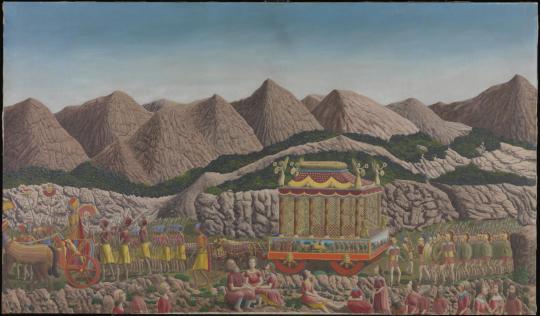
André Bauchant (French, 1873-1958) - The Funeral Procession of Alexander the Great (1940)
7 notes
·
View notes
Text
Ok, a lot of people have heard of the Dyatlov Pass Incident. But have you ever heard of “The English Calamity”?
In 1936 a group of 27 grammar schools boys aged 12-17 went hiking in the Black Forest in Germany, under the direction of 27 year old PE and German teacher Kenneth Keast. The oldest boy, 17 year old Douglas Mortifee was a prefect and assisted Keast in leading the group.
By most reports, they were poorly equipped for the challenging route chosen, especially given the wintery conditions in April. Some were even wearing sandals and shorts. The only map they had was a 1:100,000 scale map lacking terrain details, provided by the “School Travel Service”.
The plan was to cross Mount Schauinsland, starting at the village of Freiburg and finishing in Todtnauberg. When warned by the tourist office in Freibergof the weather forecast, Keast’s response was a blythe “the English are used to sudden changes in the weather!”.
After getting lost in the deteriorating conditions, they happened across an inn where again, a local woman warned them against continuing. The paths and signeage would be buried beneath snow and given that they’d already become disoriented once, surely continuing would be dangerous.
Again, Keast didn’t seem to grasp the seriousness. They would brush the snow off signs if need be, he said. And so they continued. Two woodcutters retreating from the worsening weather warned them off continuing, and a postman, Otto Steirt, even offered to guide them to return to the village or guide them to a mining hostel. This was at 3.15pm; they had left Freiburg in the morning. Keast turned the offer down.
Keast did question the state of his boys, most reporting at least some degree of misery from the cold and wet, but nonetheless, Keast decided it would be better to press on. Partly as a result of his map: at such a scale, the map showed only major routes and gave no indication that the next leg of the hike would be over particularly steep inclines, including he gruelling 600m 70% gradient stretch known as Kappler Wand.
The first boy to collapse from cold and exhaustion was Jack Alexander Eaton. The school’s boxing champion, healthy and fit, fell to the ground and was offered three things: a piece of cake, an orange, and the advice to “buck up.”
At last, they reached the ridge. Now they were facing the threat of full exposure to the winds, and it was here Keast made a terrible mistake. Had they turned eastward into the howling winds, they would have reached the summit station that lay less than a mile away. Instead, and understandably, they turned west. Disoriented, bedraggled, the boys continued on. Eaton and another boy were by now unable to walk and had to be carried, another three weren’t far off.
At last, they heard the 7pm church bells from the distant village of Hofsgrund. Knowing they would not make it off the mountain without help, Keast sent two of the healthiest ahead while the others remained behind to try and revive their fallen friends. The two sent ahead took more than an hour to reach a farmhouse on the very edge of the village. Farmer Eugen Schweizer, was in the process of bundling himself up to leave his house to catch the bread delivery when up to his door stumbled two half-frozen boys in shorts. Through chattering teeth and in broken German, they managed to give their message.
Zwei Mann, krank am Berg. Two men sick on the mountain.
Herr Schweizer ran at once to the village in to gather a rescue party. With skis strapped to their feet, the men set out and what they found was a disaster. The boys were spread out across a wide area by this point, some stumbling towards the village and some collapsed. Schweizer nearly fell over two unconscious boys nearly buried in the snow. One boy, Stanley Lyons, was discovered collapsed only 10 metres from the village inn, already dead. Keast was found with two unconscious boys. Rescuer Hubert Wissler climbed alone for 45 minutes to reach three boys suffering exposure. The rescue effort carried on until every boy had been found, lasting until almost midnight.
A doctor who was by chance holidaying in the area rushed to help the worst cases, while the boys in less severe condition were treated by the locals using the time-tested method of beating them with brooms to get their circulation going, lest exposure to the heat of the large wood stove in the inn send them into shock.
Despite the villager’s best efforts, four boys were dead. Eaton, who had fallen first, 12 year old Francis Bourdillon, 13 year old Peter Ellercamp, and 14 year old Stanley Lyons. Two more, 14 year olds Arthur Roberts and Roy Witham, remained in serious condition and were sent to hospital the following day. Witham was never to regain consciousness.
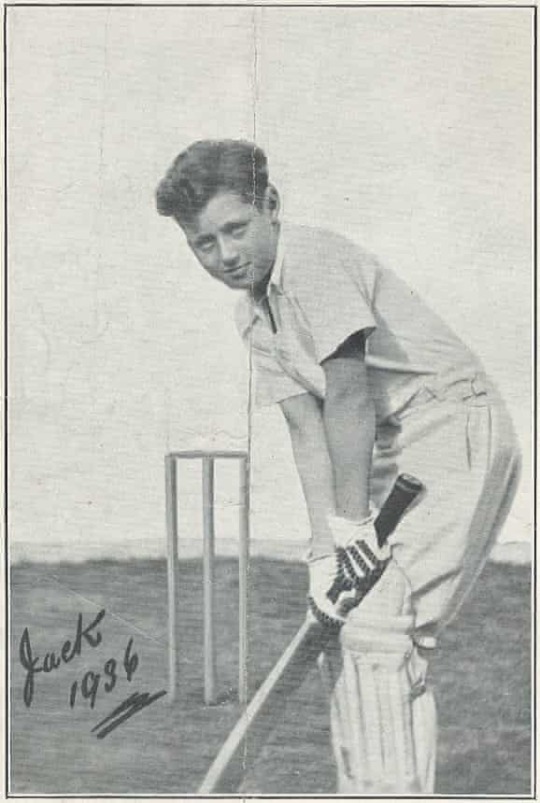
(Jack Eaton)
Dazed and barely able to comprehend what had happened, the boys were returned to Freiburg to await their journey home.
Where the story gets especially tragic is how it was used as Nazi propeganda. The leader of the Hitler Youth rushed to telegraph the British Ambassador to inform him that wreaths “from the German Youth” would be placed upon every coffin sent back to England, and that a Hitler Youth sentinel would watch over the coffins until their transportation. Newspapers in both nations carried pictures of this vigil, with coffins draped in Union Jacks against a backdrop of swastikas. As the local Youth leader gave a speech about the “will of understanding and peace” between British and German “comrades”, older Youth members took the surviving boys out to play football and on omnibus rides.
The hike has begun on a Friday; on Monday, the nation celebrated Hitler’s birthday. The coffins of the boys were not except from the celebrations. In a parade lead by local Nazi dignitaries, hundreds of Hitler Youth, Union of German Girls, and Freiburg schoolchildren, the coffins were escorted to Freiburg train station. The survivors boarded the train accompanied by 20 Youth.
The Nazi propeganda machine had already begun spreading the tale that the rescue had been a Hitler Youth effort, and the Reich’s Youth Press had issued a statement claiming the boys who had died had done so in the service of “further[ing] the open, honest friendship between nations”. The mayor of Freiburg even wrote to the father of one of the deceased boys, speaking of how his son had been “sacrificed” and become a “standard bearer for the important aspects of understanding between our two great nations”.
The excitement did not stop at Freiburg; thousands of Germans came out to watch the train on its 330 mile journey from Freiburg to the Belgian border, many throwing sweets for the survivors as they hung out of the train windows to watch the spectacle. Several parents of the boys personally wrote thank you letters to Hitler to thank him for the grand send off, and to the German state train company for waiving the £60 fee for conveying each coffin.
When the coffins at last returned home, they bore wreaths from the Hitler Youth, the British Ambassador to Germany, and Hitler himself. More floral tributes, bedecked in swastikas, arrived for the boys’ funerals.
Keast remained in Germany for another few days as a guest of the Hitler Youth, and a British tabloid newspaper ran a photo of him sitting in an open-top car with a Hitler Youth representive and a local Gestapo member.
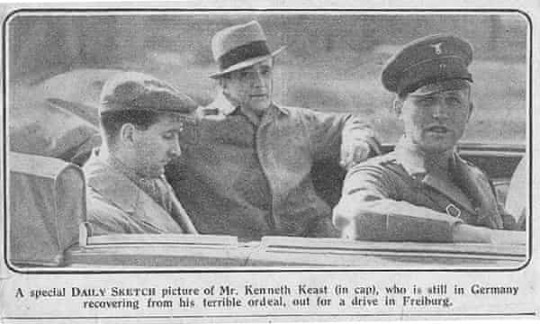
Plans for a memorial were raised publicly for the first time by the official Nazi newspaper around a month after the disaster. The Hofsgrund villagers, perhaps annoyed at the Hitler Youth claiming the rescue efforts as their own, lobbied for an inscription that would have acknowledged the locals who had risked their lives to bring each boy, dead or alive, from the mountain. It was, however, the leader of the loca Hitler Youth who was eventually given control of the project.
While the original plan by the Hofsgrund villagers had been a rock with an inscription, the Youth leader wanted something far grander, going so far as to bring aboard renouned art professor Hermann Alker to create a design for a project he was keen to stress was of special interest to the Führer. The final design consisted of two huge slabs of Black Forest granite inscribed with the names of the boys, with a third stone bridged atop bearing a Nazi eagle and swastika.
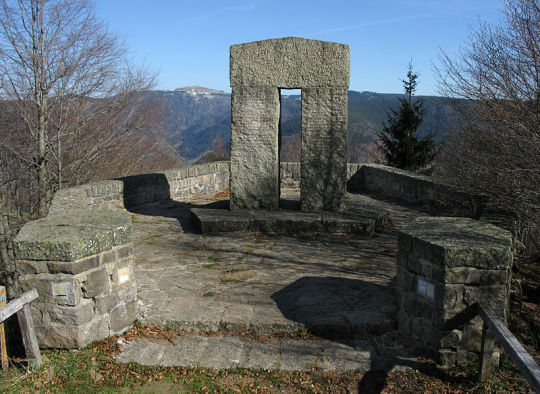
(The monument today)
The inauguration was due to be attended by a member of the British royal family and Lord Baden-Powell, founder of the Scout movement. However, the monument’s completion date, the summer of 1938, was shortly before the Munich Agreement which gave Germany control of the Sudetenland, and the atmosphere between Germany and England was no longer one in which such an event would take place. There were even calls to tear the monument down, though nothing ever came of them.
Another, smaller monument exists. Commissioned by the father of Jack Eaton and created by a Freiburg sculpture, the lone granite cross sits just 500m from the grand Nazi sculpture. Another memorial sits at the entrance to the Hofsgrund church yard, erected by the parents and thanking the locals for their help.
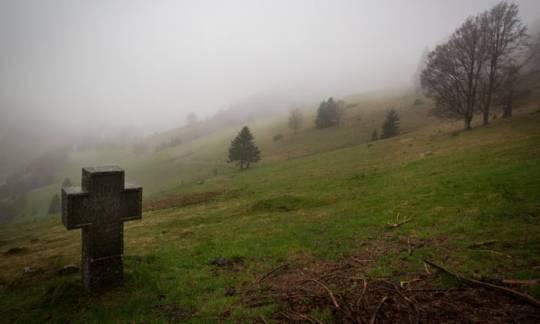
(Eaton’s memorial)
Eaton’s father, also named Jack, lead his own investigation into the events, going so far as to travel the route himself just days after the disaster and interview rescuers and witnesses with the help of a solicitor and interpreter. He discovered the inadequate map used by Keast and handed it over to the local prosecutor’s office, vowing not to rest until a public inquiry was held to determine how such a tragedy could have happened. Eventually releasing his own 10-page report on the events, Eaton Sr. believed that had it not been for the church bells, every boy likely would have perished. He also claimed that Keast’s “open dislike” of Germans resulted in his refusal to take any warning seriously, concluding that it would have been “degrading for him to accept a German’s word of advice”. His understandable anger towards Keast was such that he originally intended his memorial to his son to contain the words “their teacher failed them in the hour of trial”, though the local authorities refused to allow it.
No investigation of the matter was ever seriously considered and Keast returned to work at the Strand school, along with his surviving pupils, not long after. He even went so far as to plan a ski trip to Austria just eight months after the tragedy, though this was stopped after threats to the school made by Eaton Sr.
This was not a singular incident; Eaton Sr. frequently harassed Keast at the school and at his home, and often railed against older boys on the trip whom he accused of cowardice in letting harm befall the younger students. Eaton Sr.’s anger was such that he hung a sign in his shop charging Keast with his son’s death, and shouted at a student in the street for wearing the uniform of the school that had caused his son’s death. The trauma of losing his son caused him to become the tragedy’s fifth victim, dying in a psychiatric hospital after several years spent desperately fighting for justice.
Keast continued his career as a teacher, eventually moving to a different school and living in comfortable obscurity until his passing in 1971. His actions immediately following the tragedy were seemingly those of a man unable to comprehend or accept what had happened - the report given to a German investigator completely omitted the severity of warnings offered by the locals and on his return home, he went quickly on holiday to Bournemouth where he had a brief but intense romance with a teacher met there. A letter sent to her, barely a week after four of his students died, thanks her for restoring him to “whatever sanity I can hope to approach” and also makes the claim that “in spite of everything,” his time with her was “the happiest day of his life”.
The English Calamity is practically unheard of outside of Hofsgrund and Freiburg, and the official, albeit false, story of Nazi heroism made it an uncomfortable one to remember. But it is worth remembering, not least as an example of the dangers of arrogance in the face of danger.
25 notes
·
View notes
Text
My Ballot for They Shoot Pictures, Don’t They?’s 25 Favourite Films Poll
The following is my ballot for They Shoot Pictures, Don’t They?’s poll for their readers’ 25 favourite films of all-time. It contains a dozen or so favourites, several compromises, and a handful of personally foundational texts.

Seven Chances (1925, Buster Keaton): It ain’t easy to only choose one Keaton. This is one of Keaton’s films with a racist blackface character, which gave me some reservations. Still, this is a solid contender as his funniest picture, and, more importantly, this is Buster as I love him the most. Keaton’s characters were always the most cerebral and lost, keen observers with no understanding. An inability to communicate one’s emotions drives the need to convert it into a physical experience; Keaton inevitably becomes the object that cannot be stopped. His full forced desperation and athleticism, he is a master of locomotion. Featuring the finalization of the chase gag, along with a generous serving of his brand of surreal.
City Lights (1931, Charles Chaplin): Comedically and emotionally devastating.
Trouble in Paradise (1932, Ernst Lubitsch): Lubtisch’s portrayal of Continental aristocracy on the cusp. Containing love, melancholy, desire, rivalry, loyalty, betrayal, criminals, and thieves-- all saved by his grace alone, achieving a rare bliss of comedy and romance. Normally, I’d say that, in a temporal world, perfection exists only as a process, but then how would I explain this?
La grande illusion (1937, Jean Renoir): In the best of Renoir’s films, I find a type of harmony I find lacking in the rest of the world.
La règle du jeu (1939, Jean Renoir): In making this list, I never doubted either of these Renoir films having a place. Now, trying to write about my list, I find myself becoming frustrated at not finding the words to explain why I chose them. I’ve never been a great communicator, and I doubt that’s Renoir’s fault. I think it’s best for me to move on before I start misplacing my frustrations with my inability to write onto the film itself.
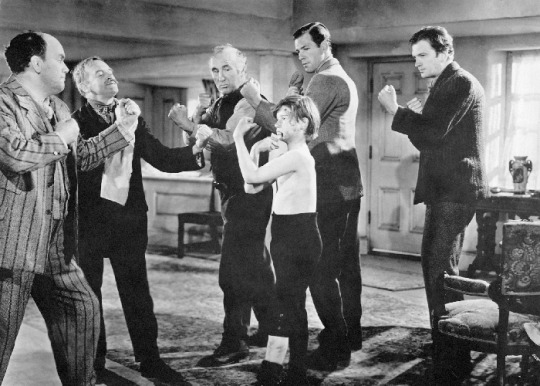
How Green Was My Valley? (1941, John Ford): Possibly the greatest movie ever made under Hollywood’s Studio System, and perhaps the closest we’ll ever get to seeing what Hedy Lamarr might have seen in John Loder. More than any other actor, Sara Allgood carries this film, in her role as the matriarch of the Morgan household. This is chock full of great character actors and moments as you’d expect from Ford. It’s the magic of childhood, the safety of the womb, the cyclical nature of a town where nothing ever seems to change, and the devastation of entropy. I lost track of how many times I cried.
To Be or Not to Be (1942, Ernst Lubitsch): This is my choice for a comedy from the 1940s, despite stiff competition from Hellzapoppin’, and the 11 movies Preston Sturges released over the decade. I had the privilege of seeing this at my local Cinemateque with an introduction by Kevin McDonald. I was late, and the audience had already begun to talk back. He rolled, and we were soon laughing before the “projectionist” could hit ‘play’ on the Blu-Ray. My friend came later. It was a packed house, so we weren’t able to sit together. I enjoyed hearing the variances in people’s response*, and the timing of their laughter. Trying to pinpoint my friend’s laughter from the crowd, I couldn’t help but hear our host’s generous laughter throughout the film. What a joy it was for all of us to experience this film together. I guess I haven’t had a chance to share those other movies the way that I was with this one.
*A nice change of pace, as this usually makes me self-conscious
Shadow of a Doubt (1943, Alfred Hitchcock): I find Hitchcock’s women’s pictures to be some of his richest texts. Besides which, any film asking me to sympathize with Theresa Wright already has a lot going for it. Alongside The Wrong Man as Hitchcock’s most tragic film.
Brief Encounter (1945, David Lean): My favourite romance, whatever that says about me. A passionate extramarital affair between Laura Jesson (Celia Johnson) and Dr. Alec Harvey (Trevor Howard), told in flashback. I don’t think I’ve ever seen this placed among noirs, but I think this could be an example of a women’s film noir. There’s a thick sense of transgression and fatalistic mise-en-scene, along with an inability to escape, which ends the film on an unconvincing return to safety.
After the two lovers part for the final time, Johnson returns home. Her husband, Stanley Holloway, asks for nothing, and expresses gratitude for her return. However, for all of that loveliness, Johnson has learned that the world is far more fragile than she ever dreamt. The husband is portrayed as a bit childlike, and, coupled with the affably stiff upper-lipped nature of their marriage, Johnson is unable to confess what’s occurred, which only preserves her turmoil. Unable to consummate, sustain, or forsake her romance with Howard, she may find some refuge with her husband, but salvation eludes her.
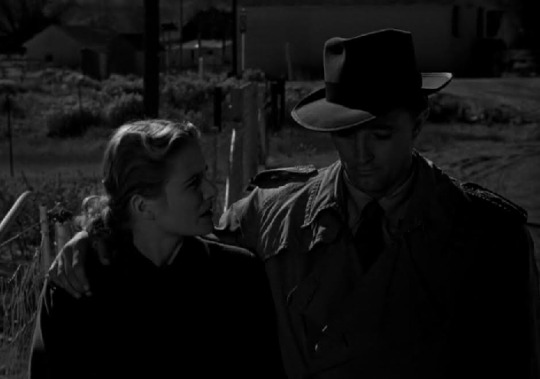
Out of the Past (1947, Jacques Tourneur): RKO Pictures, film noir, Jacques Tourneur, and Robert Mitchum– These are a few of my favourite things. As a prude, I don’t care to admit that I love cigarette smoke in B&W pictures as much as I do, and it’s deployed here to its zenith, courtesy of Nicholas Musuraca’s cinematography. Daniel Mainwaring’s script, along with Tourneur and Mitchum, use underplay in order to create a heightened effect. Mitchum’s somnambulism grants his portrayal of Jeff Bailey an omniscient cool, which extends to his character’s bisexuality. There’s such delight in hearing Mitchum, one of the best voices in movies, deliver the film’s lyrical dialogue in his disaffected baritone.
The Big Heat (1953, Fritz Lang): Perhaps Lang’s most cynical film? The culmination of all his conspiracies. The law vs. criminals, no longer as separate from one another, but as sides of the same coin: the establishment. Sergeant Bannion (Glenn Ford) engages in total war against Lagana’s (Alexander Scourby) crime syndicate. Those caught in between end up as collateral damage, pawns in their game. Each dismantles the family unit, Lagana disposes of Bannion’s wife (Jocelyn Brando), and Bannion displaces his child, so that both sides can carry on unfettered. The happy ending finds Bannion happily back at work in the homicide department, where they’re informed of a grisly murder. Oh boy, here we go again! Gloria Grahame, a sister under the mink, reigns as my favourite actress in all of film noir.
The Sun Shines Bright (1953, John Ford): It’s not easy to film a miracle, a feat for which I’d pair this with Carl Th. Dreyer’s penultimate film, Ordet. Speaking of Dreyer, if you have 15 minutes to spare, here’s a great video of Jonathan Rosenbaum discussing this movie alongside Dreyer’s final film, Gertrud. The responsibilities and limitations of society. Communities are built through sacrifice, as we give of ourselves, which accounts for the film’s sometimes funereal tone. One’s resting spot as the place to make a stand, but what good is taking a stand if it doesn’t lead anywhere? Our redemption lies not in preserving ourselves, but in guiding the world to a place that no longer needs us. Thus, not a dying world to save, but an understanding that we must pass in order to bring about renewal. Funerals become parades, and parades become funerals, as we walk the strait and narrow path between tradition and progress. Don’t take a stand while the world marches on, but lead us into thy rest.
The 5,000 Fingers of Dr. T (1953, Roy Rowland): This is a musical written and designed by Dr. Seuss, which is to say that I think you oughta see it. Still, it’s hard to justify why I chose this over The Band Wagon. I’d probably better enjoy watching The Band Wagon, which I’d wager is Hollywood’s greatest musical, but there’s something about The 5,000 Fingers of Dr. T that gets under my skin. I saw it on television when I was very young. Old enough to remember seeing it, but too young to remember more than three details: twins joined at the beard, the nightmare-inducing elevator operator, and a large piano requiring an exponential amount of fingers. This forgotten foundation, along with its Seussian imagery, grants the film a dreamlike feeling. Just as every good boy deserves fudge, every Hans Conried deserves a role like the one he has here, playing the titular Dr. T.
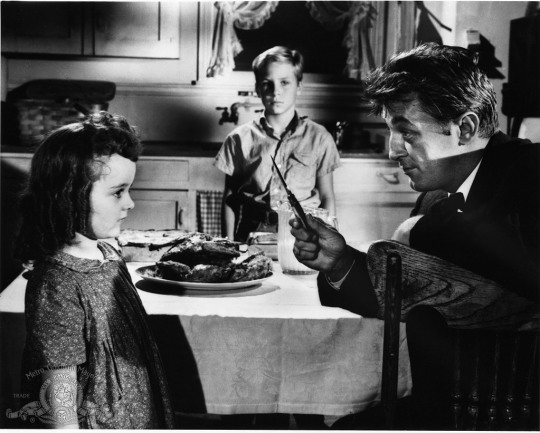
The Night of the Hunter (1955, Charles Laughton): A kid’s film featuring the personification of evil, not in Mitchum’s portrayal of the preacher Harry Powell, but in Evelyn Varden’s Icey Spoon. This movie is so full of indelible images that I sometimes forget LOVE/HATE tattooed on Powell’s knuckles. There’s a dreadful unease from the inability to fully save or preserve Ben & Pearl within a society whose systems turn on them so easily. Their safety is drawn and quartered at every turn, and so Ben & Pearl flee society, finding a guardian out yonder. Still, there’s a limitation to their newfound guardian’s protection. Their angel and their demon sing in harmony; evil becomes instructive to the children’s growth. It’s a hard world for little things, but there is hope. Mrs. Cooper (Lillian Gish) manages to find her redemption in protecting these children while she can. Perhaps we need them as much as they need us. This was Charles Laughton’s only film as a director, as well as the final of James Agee’s two films as a screenwriter. It isn’t right.
Sweet Smell of Success (1957, Alexander Mackendrick): This is my favourite film noir, possibly the nastiest as well. Of course, I cackle throughout the entire picture. Burt Lancaster and Tony Curtis at their bests; the tension between a malevolent god and his jester/would-be pretender played as flirtation, conducting assassinations as though they were composing poetry. Shot on location in New York by James Wong Howe, giving us a view of Babel from the gutters up. Also, I’m just a big ol’ softy for Emile Meyer, who plays Lt. Kello.
Will Success Spoil Rock Hunter? (1957, Frank Tashlin): As I see it, this is the best sex comedy of the ‘50s and ‘60s. Tashlin previously worked at Termite Terrace, making Looney Tunes and Merrie Melodies, and did a brief stop making Screen Gem cartoons over at Columbia in the middle. After having brought feature film techniques to his cartoons, he brought cartoon imagery into his live-action films. This is a vehicle for Jayne Mansfield, who may have been the most cartoonish of the era’s blonde bombshells, and so it is a happy marriage indeed.
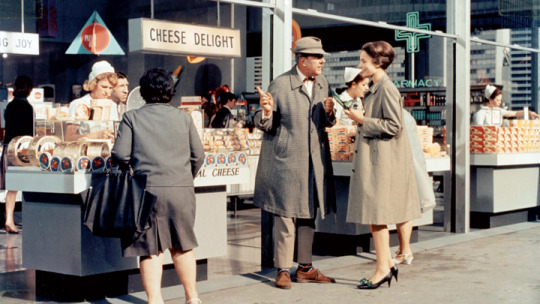
Playtime (1967, Jacques Tati): This is cinema. Ah! Tati, Ah! Modernity
Out 1: noli me tangere (1971, Jacques Rivette & Suzanne Schiffman): Rivette’s movies feel alive in a way that I haven’t found anywhere else. The films I’ve seen are about conspiracy, games, and the development of theatre troupes: things that exist only in our minds, and are dependant on our cooperation with others. Things get so twisted that you wonder how they’ll ever untie it all, only for the shared illusions to be revealed as a complex series of false knots. I broke my rule with this film, in choosing a film that I’ve only seen once. I didn’t make the time to revisit this or Céline et Julie vont en bateau, my other favourite Rivette film, so I went with the larger labyrinth to lose myself in.
F for Fake (1973, Orson Welles): This is Orson Welles’s most playful film. I love Welles, the personality, almost as much as I love Welles, the director, so I chose a movie that features both.
Mikey and Nicky (1976, Elaine May): Perhaps the most tense and dark comedy I’ve ever seen. May reaches her highest levels of drama here, and does so without any cost to her usual standards for humour.
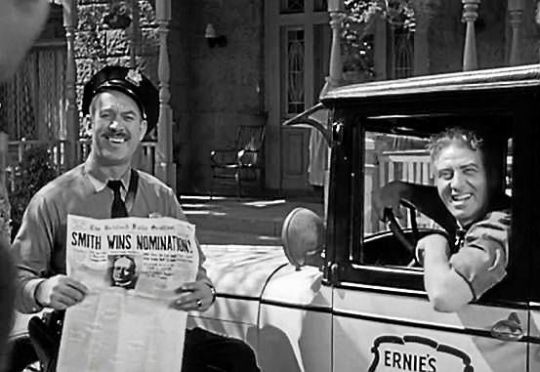
It’s a Wonderful Life (1946, Frank Capra): I wasn’t sure about including this, given that it’s not even my favourite James Stewart Christmas movie, but what can I do? It’s a Wonderful Life is an institution in my family, we’ve watched this every Christmas Eve since I was grade 6. There was a year or two in the early ‘10s where we might have missed it, but, otherwise, we’ve been devout. This is also one of four sources that laid the foundation for my love of movies, and, in particular, older movies. I hope to continue to watch this every year. It just wouldn’t be Christmas.
Growing up, my brothers and I used to be allowed to open one gift the night of Christmas Eve, which evolved into my brothers and I exchanging our gifts for each other. The first year my brother’s and I exchanged gifts, we happened upon CBC playing It’s a Wonderful Life in a 3-hour timeslot. Filling in the gaps of my memory with ego, I’d say that I instigated our watching it. I was always the biggest sucker for holiday specials, as well as being the most drawn to B&W. It was an instant hit with all of us, and so two traditions were born that night. For those curious as to what year this took place, I gave my oldest brother a 3 Doors Down CD. My older brother got me the Beast Wars transmetal Terrosaur figure. And. It. Freakin’. Ruled.
CBC continued to air It’s a Wonderful Life every Christmas Eve, and we continued to tune in. My brothers and I continued to exchange gifts on Christmas Eve for about another decade, but now my family has a better Christmas Eve tradition to pair with our holiday movie: Chinese food, and, less dogmatically, vegetable samosas. Leftovers become brunch. We’ve watched the movie, I think, twenty times now, which includes one viewing of the unfortunate colourized version, and once in theatres. It’s a great movie to come back to each year. There are lots of little moments, lines, and details to zero in on, and each year I get to internally test and brag to myself about naming and recognizing the various character actors and bit players that pop up.
Still, I sometimes find myself resisting its charms. A couple of years ago, my view of Frank Capra changed. I no longer saw him as the director I had previously thought him to be*. I wondered whether this movie stood on its own merits, or if I was holding onto it for sentimental reasons. I have since settled on this film being a genuine classic.
Another source of resistance is that I’ve never watched this on its own, there’s a lack of an individual foundation to my relationship with the film. I’m so accustomed to viewing films on my own, I think there’s a relief in a taking a private experience, and having it succeed in a public forum. The two support each other, which is part of why a couple of films ended up on this list. However, when it’s a film I’ve only seen in the company of others, I become suspicious of my experience. I believe in the power of cinema when it’s to my benefit, only to doubt it when I fear that it has the power betray me. I guess that I lack faith.
*The director I once thought Frank Capra was, I now find Leo McCarey to be.

Doctor Who: The Lost in Time Collection (1963-69, various): This was a last minute decision that ended on a mistake. I ought to have chosen Daleks: The Early Years instead, which has the proper framing of a retrospective documentary. Daleks: The Early Years is a VHS release hosted by Peter Davison, featuring interviews with key people from ‘60s Dalek stories, cannibalizing clips from Dalekmania (another documentary on Daleks in the ‘60s), and orphan episodes and snippets from otherwise lost ‘60s Dalek serials. It’s also one of the VHS tapes that I grew up with, and my introduction to the fact that, at the time, over 100 episodes of ‘60s Doctor Who were missing and presumed lost. This was my introduction to the concept of lost media. Since then, a further 12 episodes have been found, and the number of missing episodes has dropped to 97.
Instead, I chose The Lost in Time Collection, which is a 3-disc collection of orphan episodes and surviving clips from otherwise missing ‘60s serials, not actually a feature in itself. It’s a really nice sampling of the Doctor Who’s best era, and the episodes and clips are sometimes more interesting without the rest of their serial for context. While I didn’t get this collection until I was an adult, I had managed to see most or all of its contents growing up, mostly on various VHS compilations, as well as some clips online. As the deadline for submissions approached, I chose the one I enjoy more, rather than the one that first changed me.
I suspect that Doctor Who was the first work of science-fiction that I got into, as it predates me in our household. My brothers and my getting into Transformers predates my memory, but it does not predate my being around. Doctor Who also served as my first exposure to B&W viewing. I was really into science-fiction growing up, and the genre was really my first interest in older films. The interest didn’t really bridge its way from my youth into my present. Heck, I wasn’t even particularly a movie person until into my twenties. In early adulthood, after fading for a bit, my fondness for science-fiction was more directed towards video games and books. So while it didn’t lead into my love of film and B&W, it laid a lot of the groundwork for what I’d eventually come to love.
My oldest brother remembers staying up late with our parents to watch Doctor Who, and my older brother has memories of trying to stay up with them, but it was no longer airing on any of the stations we had by the time I was kicking. Loved, but unseen, it developed a sort of mythic reputation in my young mind. Over the years, we managed to see a bunch of serials on VHS through our local library system, and we eventually got 5 VHS releases of our own before the decade ended. We got a book, The Doctor Who Yearbook, which had listings and synopsises of every serial ever made. The classic Doctor Who series lasted 26 seasons, consisting of 153 serials, and just shy of 700 episodes. No matter how many episodes of Doctor Who I managed to see when I was growing up, it was only ever the tip of the iceberg.
My younger self liked daydreaming about all of the adventures, planets, aliens, robots, and monsters, but that would begin to dissipate with age. While I loved Star Wars for the many of the same reasons as I did Doctor Who, the advent of more Star Wars wasn’t all that fulfilling, with Episode I: Racer for the N64 PC as a noted exception. More than the fact that I was caught up in the cultural backlash against George Lucas, the lack of a well defined characters and society in the original trilogy was a virtue. The toys and books really capitalized on this. I was the kid that wanted to know every weirdo and background character’s life story. I was such a mark.
The more movies they made that added to the lore, the smaller their galaxy seemed to be, in opposition to an expanded universe. Each piece promising to add to the larger picture only seemed to reveal a smaller whole. More movies telling the same stories with different versions of the same characters. A galaxy that once seemed so vast now revealed to be comprised of maybe two dozen people, many of which are related or connected to each other in some tired and unnecessary way.
Eventually, I got really into Jonathan Rosenbaum, and began to project my ego all over his preferences, to which Star Wars became a victim. I gave up on the series after sitting through a showing of Episode VII. Fires subside, and, these days, I’m mostly indifferent towards the series. Undergraduates can be a bit much, y’know?
While the new Doctor Who series also fell out of favour with me, it was easier for me to divorce it from the original series. Having seen the series only in disparate pieces, rather than a linear narrative may have helped. I have no illusions that the original series is anything more than a silly kid’s show that mostly takes place in corridors, which is a fine thing to be. It’s enough to be a delight. The deceit of nostalgia is that I can return to these works I once loved with the same feelings and wonder that I had as a child.
While I remain fond of Doctor Who, the whole of a serial is often less than the sum of its parts. After all, being a serial, half of the adventure is meant to take place in your head during the week between episodes. It’s the opposite of binge-watch material. It’s hard to commit to working your way through such a bulky series at a deliberately slow pace. Besides, even spacing the episodes out some, it’s still not going to capture my mind the way it would when I was a child. The virtue of the Lost in Time Collection is that you’re never seeing a serial as a whole, only as individual pieces.
The collection consists of 18 complete episodes from 12 serials, with clips and bits from an additional 10 serials. Only one serial has more than two episodes featured, The Daleks’ Master Plan, a 12-part epic, which has its 3 known surviving episodes on the set. Freed from the responsibilities of being part of a larger story, you get to enjoy the pleasures of each episode as its own entity. Charm exists outside of context, and what may have been stretched and strained over half a dozen episodes can easily be sustained in the single episode or two that remains. A piece of Starburst may not keep its flavour any longer than a piece of Hubba Bubba, but at least it has the decency not to overstay its welcome.
The less that remains of a serial, the more interesting it becomes. For some serials, the only surviving clips are the scenes that were cut by censors, and so you’re only seeing the juiciest bits. Protected by obscurity, just as recording in B&W protected this era of the series against its lack of budget, the childlike sense of wonder remains. Any missing serial could have been great. We lack evidence to prove otherwise. What little remains from these serials is enough to imagine what may have been, and it’s easy to give the benefit of the doubt to an old friend.
No longer just a science-fiction adventure, the series has grown into a larger and more engaging adventure in film & television preservation. Thanks to its cultural status and following, questions as to how these stories were lost, why years of episodes were junked, how they were returned, in which disparate places were episodes found, who has been hunting for them, what were their methods, to what lengths did they go, what places remain to be searched, what remains to be found, what’s trapped in the hands of private collectors, and what has been lost forever have all been thoroughly explored, though some answers continue to elude us. For those interested, Youtuber Josh Snares has an extensive series of videos that breaks down many of these questions as best as one can with what’s publicly known, and, despite being on yotube, I don’t think he’s annoying.
Doctor Who best represents my film lover’s sense of discovery, combining the joys of hearing about a film that piques my interest, trying to track a film down, discovering or rediscovering a new favourite, learning about film history, and the efforts of film preservation. Hearing about films I’d like to see can be nearly as rewarding as actually watching the films themselves. The more that I see, the more there is that I’d like to see. The harder something is to find, the more interesting it can become. Film is a physical object, so there is a battle against time for us to discover, recover, restore, and preserve works before they’re lost to time. The good news is that many efforts are being undertaken, both by professionals and by amateurs. The advent of crowdfunding has really helped to create more opportunities for completing these endeavours.
Following an Indiegogo campaign, Netflix stepped in and completed Orson Welles’s The Other Side of the Wind. Many of Marion Davies’s silent films have been restored in recent years. Thanks to the efforts of Ben Model and his team, I will soon have the pleasure of seeing eight Edward Everett Horton shorts that haven’t been in circulation since the silent era. Steve Stanchfield (Thunderbean), Jerry Beck (Cartoon Research), Tommy Stathes (Cartoons On Film), and their cohorts are doing God’s work in finding and restoring old cartoons, and giving them an audience once more. I don’t think there’s ever been a more exciting time to be so out of touch.
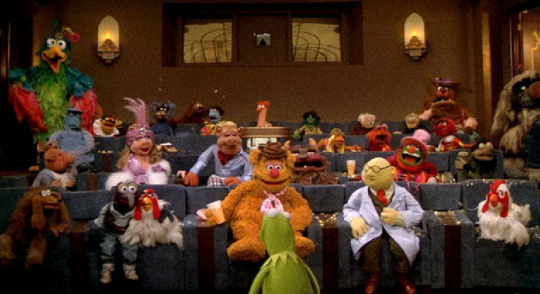
The Muppet Movie (1979, James Frawley): The Muppets’ movies were a staple of our household growing up, and this ranks alongside The Great Muppet Caper as the best of them. This movie has a very self-aware humour to it, exemplified by the introduction. The camera wanders through a studio backlot, following a car carrying Statler & Waldorf, who provide us with the first dialogue of the film, announcing their intent to heckle the film. Inside, the Muppets are waiting for a private screening of The Muppet Movie to begin.
It’s a disaster. A monster tears out one of the seats, the visibly deranged Crazy Harry blows up another, people are dancing in the aisles, and chickens are flying about. Objects being thrown include, but are not limited to, popcorn, Lew Zealand’s boomerang fish, and paper airplanes. A full-sized Muppet looms in the background, a giant colourful bird with enormous unblinking eyes, leaning a bit from side to side. An acknowledgement that somebody has let the animals in charge of the zoo. Still, a coziness remains amidst all of the chaos.
Kermit attempts to introduce the movie to his peers, the lights go down, and he takes his seat. The movie opens in the heavens, where the credits and a rainbow appear. It clears onto a long, long shot of a swamp, slowly zooming in to reveal a frog on a log, playing a banjo, singing Paul Williams and Kenneth Ascher’s The Rainbow Connection. We’re taken away.
One of the most vital aspects of the Muppets is that they exist in our world, something that gets lost in their 90’s trend of literary adaptations. An entire world of Muppets isn’t much of a utopian vision, but the idea that these animals, monsters, and whatevers belong in society alongside ‘real’ people is. This trend was part of a larger regression throughout the years with the Muppets. What began as a self-aware humour turned into a self-depreciating humour, and, eventually, a self-loathing humour. The Muppets used to take on the world, but, in later years, they seemed unable to dream of anything more than getting back together once more, so that they could reaffirm their lack of success. Bring them back to life so they can take one more dying breath.
This Muppet movie is filled with celebrity cameos, in part a tribute to their variety show, as well as to the vaudevillian origins of most of their shtick. Here, the cameos serve the Muppets. Later, the Muppets would take a backseat, and become vehicles for others, not even allowed to star in their own movies. I wish they were given better opportunities to shine. As good as this film is, I have to admit that this film’s treatment of Miss Piggy is embarrassingly sexist. While they don’t look like Presbyterians to me, at their best, I think the Muppets have almost as much hope to offer as any religion.

Transformers: The Movie (1986, Nelson Shin): Watching this movie gives me the feeling I always hope that I’ll feel whenever I’ve bought concert tickets. I don’t watch this so much as I sing along to it. I even knew Vince DiCola’s score down to a ‘T’. With all due respect to Storefront Hitchcock, this is my personal Stop Making Sense.

Air Alert V. 4 (late 2000’s, TMT Sports): First, and most importantly, I do not recommend Air Alert nor any other paid for vertical jump program. I cannot stress that enough. They’re not designed by people who really know what they’re doing, the marketing is predatory, they’re unjustly hard on your joints, and they’re methods are not in conjunction with their promises of wild vertical gains. While I hope to stop finding that people have also done Air Alert, I immediately feel a strong kinship with those I learn have also been misled.
Air Alert is a 15-week vertical jump program that makes the dubious promises of adding 8-14 inches to yer vertical leap to everyone, regardless of their current physical condition. It promises to add explosiveness to yer hops, but its means are an exponentially increasing amount of jump exercise repetitions. This is to say that, in practice, Air Alert actually builds jumping endurance, which teaches yer muscles to conserve energy, rather than to expend it in an explosive manner. Like all jump programs, it also fails to address that much of your jumping’s height comes from a combination of your core and upper body strength, as well as technique. The version I got also came with an advertised-as-new Air Alert Advanced, a further 6 weeks of yet more intensive exercise routine to add another 3-6 inches to yer leap.
I did the 15 weeks of Air Alert, and, like everybody else I’ve known, I got 2-3 inches added to my vertical. After the recovery week suggested following completion of the program, I tried dunking at the church. You had better believe that I told my dad to bring his digital camera, ’cause this was gonna be a big deal. Being able to dunk was surely going to usher in a whole new era in my life.
Now, I had been wrong about these sorts of things before. I had become skinny, I got a couple of nice shirts, I listened to what I though was the right unpopular music, and I had stolen some jokes, but my life largely remained the same. It seemed as though my life couldn’t be redeemed by vanity and trivialities, J still wasn’t dating me, but this would be so much more. This was dunking. This was going to be different.
We went to the church, and I had the same problems as before. I could get high enough, but I couldn’t throw down. The further you extend a limb from your core, the less strength it has at its disposal. I had little upper-body strength to begin with, and, fully extended, my hand is pretty far from my body. I’d always lose the ball on the way up, or lose height putting more of my strength onto the ball. Legs can only take you so far. At my best, I’ve brought the ball to the rim, lost it, and, thanks to momentum, had the ball go off of the backboard and in. A lay-up isn’t a dunk. My knees have been crunchy ever since.
After a further month of letting my joints recover, I tried my hand at Air Alert Advanced. After the first week, which consisted of 3 days of 2000 individual jumps, some of my friends reunited to play soccer at our old high school. I was proud to see that the goals we had rescued were still on the field. However, I found that my joints were so worn down that I could only run at a steady pace in a straight line. Turning, accelerating, and decelerating were all, sadly, out of the picture. I decided not to continue onto the subsequent weeks.
I was still a fatuous pauper, single, and working at a shoe store while friends had gone on to do other things, so what did I manage to accomplish? Well, for starters, I gained some athletic ability for the first time in my life, which was neat. I gained a lot of leg strength, endurance, and quickness, as well as the previously mentioned 2-3 inches to my vert, all of which I treasured. Despite being the skinniest guy on the court, my legs were strong enough to anchor me in the key, and contend with guys up to double my weight. I went from being a guy who showed up to Dunkball, to becoming a guy that people wanted on their team.
While others got tired throughout the night, slowly losing their vertical, I managed to jump just as frequently and just as high in my last game of the night as I could during my first. As both the tallest and the lankiest guy at Dunkball, my height advantage now increased in the air. I’d let people box me out, only to jump and reach over them. I felt so free. I was, and remain, Dunkball’s most improved player. Of course, it helps to have the advantage of having started out lower than everybody else. Once, somebody brought a friend who was taller than me. It was awful.
As for dunking? Well, I could dunk small balls at the church, if I could close my hand on them. I managed to dunk a flat soccer ball on an outdoor net at a school yard once, but I never verified its height. I could dunk at the Academy chapel with the rim fully raised, though that rim sags in the front, so I’m guessing that rim was about 9’10”. Still, that won me a game of H-O-R-S-E or two. Sometimes, when warming up for Dunkball, someone would instigate a dunk competition, and I managed to develop a trademark dunk which nobody could replicate or stomach: the underhanded dunk. Norm was the only person not to loathe it, bless his heart. While I never managed to dunk on a proper 10’ net, I was able to goaltend, which has no use outside of being a dick to a friend. I was smarmy enough to do it once.
Even at Dunkball, I never became much of a dunker, except on turnovers or tip-ins, or unless I had a guard who could do the work of setting me up. I’m more opportunistic than aggressive, besides, who am I going to beat off of the dribble? On my worst nights, I was still a tall guy who could jump, so I always drew the interest of a defender. I’ve always preferred defence to offence, and my favourite offensive play is to box out their post-player, either to be in a better position to rebound, or in order to prevent them from goaltending.
Defence is where Air Alert made the most difference for me. They either had to box me out in order to stop me from goaltending, or try banking it in. I could sit low enough to the ground to defend outside players without losing speed. With a lower net, some players didn’t arc their shots as much, allowing me to swat them away with ease.
There was nothing better than blocking a dunk. Some people took it personally, and would try coming at you on the next play; we all loved blocking Joseph. Still, the best was blocking Norm’s dunks, even if it meant landing on my back.
It was summertime, the final game of the night, with uneven teams and lopsided match-ups, but, somehow, it’s neck and neck. Not only are we still in it, we’ve had the lead. Will is shooting, Nathan is hustling, and I’m blocking everything. My greatest defensive game ends prematurely after I block one of Norm’s dunks, landing horizontally, with all of my weight squarely on my tailbone and elbows. I call it a night, and, in the morning, learned that we had lost immediately after I left.
At this point, I had memorized Air Alert’s number of sets and routines, and so I lent the DVD to Graham. He promised to return it soon. This was in 2010. I learned how to juggle that August, but that didn’t save me either. I kept up my jumping exercises, doing week 4 as maintenance, losing consistency once I started university that fall. Dunkball slowly lost consistency, too, and so I eventually took up the reigns of organizing it. People changed wards, got married, moved, and started families. It was hard to motivate people to come out without a guarantee.
At some point, I became one of the veterans. As Dunkball continued to lose consistency, and as I went through occasional bouts of burn-out withorganizing things, Dunkball changed from being year-round into seasons, and, later, patches, of activity. The benefit of being the one to organize Dunkball is that it allowed me to filter out the jerks between patches of activity. There aren’t a ton of rules, you can make a pass off the wall, you can charge, you can play it in the hall, and goaltending is a way of life, but life is too long to spend it with people who can’t play sports without yelling.
We weren’t as athletic as we once were, but the new players were generally pretty skinny, so we were still able to push them around. I stopped buying bus passes after my first year of university, which helped me to maintain most of my leg strength. While I was in university, I managed to keep most of my vertical, but my confidence became precarious, which affected my intensity. I wasn’t soaking through my shirts anymore, I started to let people push me around.
After I dropped out of university, I grew into a much more sedentary lifestyle. The leg strength I had used to define myself diminished. I’ve had a really hard coping with that. At times, the prospect of playing Dunkball felt more embarrassing than motivating. I felt lost out on the court. I didn’t feel strong enough to bump around in the key, and I felt sluggish trying to play on the outside. Still, I had now been around long enough that I was able to lead a team, if necessary.
I’d hide from my refuge until I felt strong enough to return. Volunteering and winter each got me walking again. Collin organized a soccer team the summer before the pandemic, which got me running and jumping again. I felt more determined, and began to feel better. No longer trapped by where I was, or where I felt I should have been, I was content with making progress.
I think that I handled the early months of the pandemic better than most people. With our usual routines in disarray, I stumbled out of the feedback loop I was caught in. Finding some self-compassion and focus, I created structure to my quarantine in order to work on some goals. I was going to come out of the quarantine dunking. I was joking this time, but I need to dream about something while exercising. Otherwise, I’m just jumping in place, staring at the door. I went through weeks 1-7 of Air Alert, ending with the rest week that marks the halfway point. After which, I returned to doing week 4 to maintain strength.
With churches closed, activities cancelled, and others on lockdown, I started secretly meeting Nik on Saturdays to shoot the ball around. This was back when we were allowed to keep small circles of contacts. The benefit of having keys. The only downside was that the building didn’t have any air circulation outside of facilities management’s offices.
Regarding the pandemic, our city still didn’t have any cases of community transmission. Two of us shooting the ball around became three, and soon we were playing 2-on-2. Dunkball was back, baby! Sans the titular Dunkball, which had gone missing, stolen by missionaries.
I knew that it was only a matter of time before they got rid of the Academy chapel, so I was really motivated to play as much as we could while it was still safe. It took us a little bit before we managed to get six players out on the same day, and we still ended up playing 2’s some nights. We weren’t getting many guys out, but we always had good games. Everyone who came out hustled and was a solid atmosphere guy. We’d mostly play best-of-5 or 7 game series, maybe switching teams up for a final game or two. The series managed to stay pretty tight, with nobody ever reaching a dynasty.
Facilities management leaves the building at 5:30, and, with nobody else around, our secret combination was free to schedule Dunkball whenever we pleased. We were playing twice some weeks. We were able to accommodate people’s schedule. Marvin, my favourite teammate, was able to come out. I hadn’t been able to play with him in years. A high percentage of our small group of players were relatively new to the game. It was really exciting to see them develop, even if Jason blocked me that one time.
I had found my place again, having regained some of my leg strength and quickness. My core and upper-body strength, elusive at the best of times, had become memories, but I worked around that. My game is mostly designed with those absences in mind anyways. Consequently, my play became much more lateral, rather than vertical, after the 4th and, later, 5th game, as Collin noted. I also managed a new trick or two, like learning to bait people into banking their shot, and then blocking it off of the backboard for a quick turnover. My intensity was up, or at least the A/C was down. I was soaking through my shirts again, and I was happy.
It was a hot and humid summer. I missed Jason’s birthday, so I brought some blackout chocolate banana bread to celebrate. As it turns out, a thick moist cake is not refreshing when you’re exhausted and sitting around in a hot and stuffy room you’ve spent the past 2-3 hours further heating up with yer friends. Collin became the MVP the following week when he brought a box of freezies with him. All my life, I had never seen their true worth or potential. I took them for granted in my youth, and turned my nose up at them as I grew older. Now I understood.
I had Dunkball, I had friendly players who responded when I tried organizing things, we had freezies, and, as the Ward Clerk, I had convinced my Bishop that we should buy a new ball (despite the fact that playing at the Church was still verboten.) I was grateful, but I still longed for a day where we had more than 4-6 players, so that we could have subs between games. It’s nice to be able to switch up teams between games, rather than trying to push Arles all night. It’s even nicer to sit down every once in a while, especially after failing to push Arles around.
Our province was still fairly safe, but that was beginning to change. Two regulars had at risk family members, and we began seeing community transmission. I planned to end what was to be the penultimate season of Dunkball after Labour Day. I was concerned what would happen once the school year started.
Before then, we had eight* people come out to Dunkball one morning. Four pairs of family members, in fact. This gave us rotations between games, and a variety of playing styles, leading to more interesting match-ups and dynamics. Whoever loses would get to take a break; excitement was in the air! I questioned Collin’s choice of shoes. He reminded me that I’m solely responsible for their condition. I lend Collin my shoes. He likes the shoes, and I like his freezies.
*the ideal amount is 8-9 people
Shoot for teams: Graham, Collin, and I hit our shots. Collin has speed, Graham has range and strength, I have the height, and we all rebound. We win the first game easily, manage to survive the second, and win our third. Dynasty! Shoot for teams again, and I’m back on the floor with David and Marvin. David anchors the key, allowing me to cheat on defence, while Marvin generates offence and creates mismatches. We all defend. Three more wins, and it’s another dynasty! Marvin and I sit this time, and watch as Jacob (handles), Graham, and Jason (positioning) steal the game.
Marvin and I go back on with Limhi, a guard heavy team playing an post-player’s game. They shoot and pass, drawing out the defence, while I set picks, prevent goaltending, and try to clean up on the boards. They cover the outside, while I guard the inside. When the other team goes to the inside, I make their post-player turn away from the net, where either Marvin or Limhi, cheating off of their man, are waiting to strip them of the ball. We win the first game, taking back the floor. They carry me through the second. Last game of the day, and the other team starts to fall apart. As per tradition, we extend the game, but only to to 15, because only Graham and I want to play to 21.
We stumble as they regroup, but Jacob gets frustrated, and their chemistry falters. I assume that I’m to blame, become self-conscious, and begin calling fouls on myself whenever I make any contact with the other team. Of course, this happens on every play, because I’m trying to box out my brother. I get some weird looks as David sighs, he just wants it to be over. I get a clean stop, Limhi scores, and the day ends on a third dynasty. I remain undefeated. Freezies for everyone!
That was the third to last time we played Dunkball. We had another night with six players, and ended the season with a morning of playing 2-on-2, after which we ran out of freezies. I was optimistic that we’d be back playing sometime in the New Year. We barely registered a first wave of the pandemic, but restrictions ended prematurely, and school started back up. Cases kept climbing.
I was scared in October, but that was only the beginning. When we first started playing Dunkball that summer, our province was first in the country. By Christmas, we had become the worst. We began to curb the number of new cases, but restrictions were eased before hospitals finished dealing with the second wave. In May, we began transferring patients to other provinces. For some reason, the plan is to reopen in July.
For some reason, a duo tried organizing ball in March. I declined. Our congregation was changing buildings, so Nik and I went over to grab some stuff. I found that our Dunkball had gone missing again, but I found the original Dunkball, which hasn’t held air since 2015, and brought it home. In April, facilities management began clearing out the Academy chapel, in anticipation of listing the building for sale. They didn’t inform our Bishop until later that week. He went over to pack anything worth keeping, only to have found that they had already junked everything belonging to our congregation, as well everything belonging to the Yazidi community group that had been meeting there prior to the pandemic.
I don’t know the building’s current status. Nik and I kept our keys in the hopes of playing again, but it’s unlikely that things will be safe to go back to normal in time. Dunkball exists as a time and a place: Thursday nights after Institute class at Academy. Last fall, they moved institute classes over to the stake centre. The Academy building is being sold now, and Dunkball is over as we know it.
As I previously mentioned, I lent Graham, the Gordie Howe of Dunkball, my Air Alert DVD and booklet back in 2010. For the past ten years now, he has meant to return it, only for it to slip his mind. I usually forget about it, myself, only for him to remind me when he apologizes. In the moment, I sorta feel guilty that he worries about it. I mean, it’s fine, I don’t need it. He’s put it on his desk, he’s placed it by the door, and though he’s either seen me or a member of my family at least once a week for the past decade, my copy of Air Alert still hasn’t made its way back to me. I’m not even sure that I want it back, but I appreciate his sincerity.
It’s become tradition for him to maintain this false tension between us. At this point, I’d hate to see it go. What if this tension is what’s sustained our friendship throughout all these years? What if Graham’s only been coming out to Dunkball because he feels guilty? I won’t see him at Dunkball anymore, and, as of this week, he won’t be seeing me at church anymore. It’s things like this that keep us alive. I hope that Graham never returns my copy of Air Alert, but I hope that he always tries.
”There is no end to matter,
There is no end to space,
There is no end to Dunkball,
There is no end to race.”
- If You Could Hie to Kolob Dunkball, by W.W. Phelps.

I could have gone on about my legs, honestly. Now, I only included those formative texts that I’m willing to admit are still a part of me. I did not include those works whose influences I feel that I have repented of, which is why the 1967 Patterson-Gimlin footage of Bigfoot from Bluff Creek, California, The Weezer Video Capture Device, Newsies, The Ultimate Showdown of Ultimate Destiny, nor anything related to Dorm Life or MST3K are not included on my ballot. In any case, I’m sorry not to have found room for Johnny Guitar.
#buster keaton#seven chances#city lights#trouble in paradise#ernst lubitsch#la grande illusion#grand illusion#la regle du jeu#the rules of the game#how green was my valley?#john ford#Shadow of a doubt#to be or not to be#brief encounter#out of the past#the big heat#the sun shines bright#the 5000 fingers of dr. t#the night of the hunter#will success spoil rock hunter?#sweet smell of success#playtime#f for fake#mikey and nicky#it's a wonderful life#Daleks: the early years#Lost in Time Collection#Transformers: the movie#The Muppet Movie#air alert
10 notes
·
View notes
Text
A Place to Belong Chapter 9: Rest Easy, Soldier
Chapter 8
Read on AO3
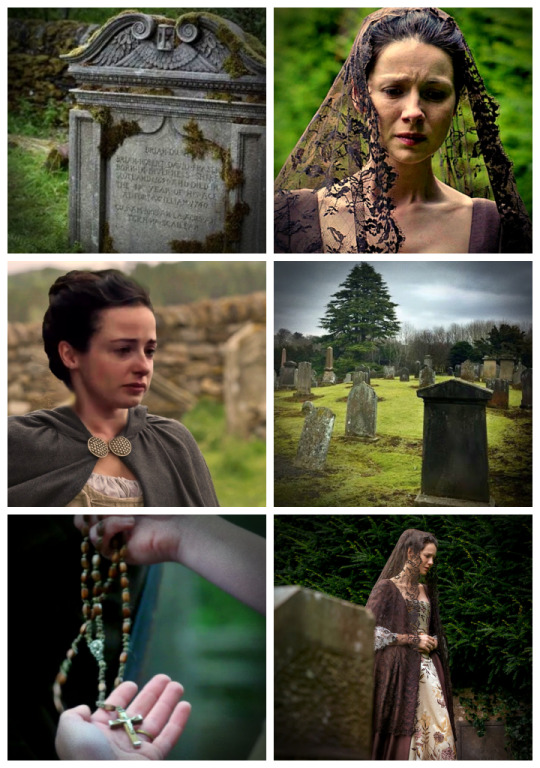
In a week’s time, they had a coffin fashioned, a headstone made, and the priest’s blessing to proceed with the burial, if one could call it that. While Jenny knew Jamie would have wanted Fraser tenants at his funeral, it would have been far too public to have a large gathering of the like. If they found out they were having a burial for a Jacobite that perished at Culloden, the Redcoats would be upon them, likely assuming they’d stolen the body after all. They’d desecrate the grave without a thought. So they would keep the service small, family and their own servants alone.
Claire was sitting in the parlor, staring absently at the empty coffin. She was wearing that black veil around her shoulders, something she hadn’t touched since they’d said goodbye to Faith in Paris. She pulled it over her head as she approached the coffin. She ran her fingers over the wood and looked inside. She swore she could see him lying there, cold and lifeless, no smile on his face despite how it appeared that he was simply sleeping. His hair was combed back as it had been on their wedding day. He was dressed similarly as well, tartan and Fraser crest arranged perfectly. She longed to bend over, to kiss his cold cheek goodbye, to smooth his shirt so he would be perfect for God…
But she could not. Because there was nothing in the coffin.
“Maman?”
Claire was jolted out of her morbid thoughts by Fergus’s small voice. She turned around, and her heart broke anew at the sight of him dressed head to toe in black.
“What is it, darling?”
“I have been thinking...about burying Milord.” His eyes wandered the room, seemingly unable to look at her or the coffin. “What he would want. And I…I would like to be un porteur de cercueil.”
Claire’s throat tightened, overcome. “Fergus…”
“It is traditionally family, no? Brothers, Uncles…or sons.”
Claire sighed, a strangled, pained noise. She crossed the room and took the boy tightly in her arms. “He would be honored to have his son carry him.” Her voice wavered, and she pressed a long, tender kiss on the crown of his head.
Jenny and Ian entered the parlor just then, Ian leaning on the crutch Claire had fashioned to help him to stay off his leg as much as possible while the bullet wound healed. Jenny was carrying the Fraser tartan. Claire moved her arms around Fergus to hold him around the shoulders and guided him behind Jenny and Ian to the coffin.
Jenny held out a length of the fabric to Claire, and she took it in her hands. Ian and Fergus took hold of a piece of it as well. Simultaneously, they brought it to their lips. In Claire’s kiss that she pressed into the fabric was every ounce of love she bore for the man that had once worn it. She reminded herself that it was not that love that she was putting to rest. She would never, never stop loving him. The dull ache of his absence would be with her forever, and she would forever attempt to fill that void with memories of him, shared with those that loved him as much as she did. Memories she would share with their children.
After kissing the tartan, the four of them lowered it into the coffin with all the reverence in the world.
“Mistress,” Mrs. Crook said, having waited a moment before speaking. “The priest has arrived.”
They all turned to see Mrs. Crook, holding Kitty and flanked by Maggie, wee Jamie, and Rabbie, Father Gregor standing behind them.
“Good day, Father,” Ian said.
“Good day. My blessings to yer grieving family in this time of great sorrow.”
“I thank ye.” Ian nodded.
“Who are the pallbearers today?”
“I am,” Ian answered. “And three men from the village, old friends of ours.”
“Two men,” Claire interjected. “The fourth will be Jamie’s son.” She placed her hands on Fergus’s shoulders, standing him directly in front of her.
“Well, bless my soul,” Father Gregor beamed. “I didna ken my Laird sired any sons before his passing.”
“He didn’t,” Claire said. “But Fergus is our boy nonetheless.”
“Oh, that’s fine, very fine,” Father Gregor said, nodding.
Fergus looked up at Claire, crossing his arm across his chest to rest his hand atop hers on his shoulder.
“I’ll go fetch the men, then. They’re in the dining room,” Jenny said, scurrying away and returning shortly with two men.
“Peter Dunkirk and Lawrence Quigley,” Jenny said to Father Gregor.
“Alright,” Father Gregor said, finally crossing the room and approaching the coffin. “Have ye all had, ah…proper goodbyes?”
“As proper as it can be,” Claire said bitterly.
Father Gregor nodded, then gestured for the men to put the lid on the coffin. Jenny, Claire, and Fergus stepped back, all holding onto one another. Peter, Lawrence, and Ian lowered the lid on the coffin, closing Jamie’s tartan inside forever. It didn’t feel as final as Claire had expected it to, perhaps because it was only fabric and not her husband himself.
Father Gregor blessed the coffin in Latin, and everyone bowed their heads. Upon completion of the prayer, everyone crossed themselves. Father Gregor looked expectantly at Fergus, and he looked up at Claire with uncertainty. She gave his hand a squeeze and gently pushed him forward. The four of them positioned themselves around the coffin and hoisted it over their shoulders, Fergus having to hold it up with his hands, being the shorter of the four.
Father Gregor started out of the room, the coffin following behind him, then Claire and Jenny. Jenny paused in the doorway to scoop Maggie into her arms and settle her on her hip.
“Both of ye hold onto Mrs. Crook’s skirt. Dinna let go, and behave yerselves,” she said to Jamie and Rabbie. “This is to honor yer uncle’s memory. Treat it wi’ respect.”
“Yes, Mother.”
“Yes, Ma’am.”
Satisfied when the boys took hold of Mrs. Crook’s skirt, she straightened and gave Kitty a brief kiss on the head, then turned to face Claire. She stretched out the free hand that was not holding Maggie. Claire gratefully took it, and hand in hand they processed after the coffin, Mrs. Crook following close behind, followed by the rest of the servants that had been congregated in the hall, waiting for the procession to begin.
The sky was gray, and a gentle breeze greeted them as they crossed the threshold onto the porch. The weather was finally starting to turn for the better. It was not hot, but there was no longer a bitter chill in the air. It was beautiful. The heather was blooming, something that Claire hadn’t noticed until today. Her eyes wandered to little Maggie, her head resting on Jenny’s shoulder, and Claire’s hand absently rested on her stomach, where a small bump had started to form. It had been just over four months; she’d start getting bigger by the day now.
She let her eyes wander everywhere but where they should have been, which was on the coffin. She watched the trees bend in the wind, she watched the heather dance in the breeze, she watched birds dart between branches. This land was truly beautiful, and she would raise her child on it, raise him to remember that his father had fought for this land that they stood on.
Claire hadn't even noticed when they’d arrived at the cemetery, but before she knew it, the coffin was down and Fergus was back by her side. Grateful to have him back in her arms, she held him close, kissing his head again. Her eyes lazily fell on the headstone, and something took hold of her heart.
Laying the tartan in the coffin, closing the lid, none of it had felt final. But to see his name etched into a headstone:
James Alexander Malcom Mackenzie Fraser
Born in 1721 and Died in the 25th Year of His Age
at the Battle of Culloden 1746
Beloved Brother, Husband and Father
It was unbearable.
Jenny must have felt her trembling, because she placed a steadying arm around her shoulders. Claire tightened her grip around Fergus, crossing her arms over his chest. He held onto her hands.
She wanted to run away. She wanted to pretend she’d never seen his name carved in stone, burn the sight from her memory. She wanted to wake up every day and sit on the porch, waiting for him to appear on the road. She wanted to live forever in denial, holding onto the hope that he would keep his promise and return to her.
But she had to face it. It was time to let him go. She could not raise his child to remember him properly if she thought all the while that he would be coming back soon. She could not be a mother if she was the grieving widow for all eternity. Her child deserved better than that. His child deserved better than that.
The ceremony finished before Claire had even started to pay attention. Jenny gave Claire a gentle shove, jolting her out of her thoughts. Claire blinked herself to consciousness, and finally noticed the priest standing before her, holding a small shovel out to her. Hand trembling, she took it and approached the mound of earth beside the grave. Nothing felt real as she scooped up some dirt with the shovel and walked mechanically to the hole in the ground. She turned over the shovel, watching as each individual speck showered down, eventually landing on the empty box six feet below her.
She stood there, frozen for a moment long after the dirt had fallen, hand and empty shovel hovering over the hole. A gentle hand closed around her hand that gripped the shovel, and she turned to see Jenny’s teary face, Maggie still on her hip.
“It’s alright,” Jenny said gently.
Claire nodded dazedly, relenting her grip on the shovel. Fergus was not far behind Jenny, wrapping his arms around Claire’s waist as soon as she backed into him. Jenny held Maggie’s hand on the handle, pouring the dirt in together. Jenny turned and handed the shovel off to Fergus. He followed suit of those before him, then handed it over to Ian, who brought wee Jamie up with him to pour it over together as Jenny had done with Maggie.
Ian held Jenny in his arms, Fergus and Claire held onto one another, as they watched the servants pour their own scoopfuls of earth into the hole. The small crowd gradually dispersed, the female servants wandering back after they’d thrown dirt in, except for Mrs. Crook, being that she was still holding Kitty. Once only the men were left, Jenny put Maggie down and approached the stone, careful of the gaping hole in the ground.
She removed the wooden rosary from around her neck, kissed it in her palm, and then lovingly placed it atop the stone. She stood up, wiped her eyes, and returned to the family.
“Off we go then,” she said, picking Maggie up again and beginning to walk off.
“I’m staying,” Claire said stiffly.
“Claire, it could take the men hours to get it completely buried — ”
“I need to see it,” Claire interjected. “With my own eyes.” Jenny looked at her quizzically. “I need to see it buried completely so it feels…final. So I can finally feel like…like it’s really over.”
Jenny sighed, rubbing Claire’s shoulder. “I understand.”
“I am staying, too,” Fergus said. “I want to help.”
“Yer needed inside,” Jenny said, trying to usher him away from Claire.
“No, it’s alright,” Claire said, tightening her grip on his shoulders. “If he wants to help then he should.”
Jenny nodded. “Try not to be out here all night.”
Claire nodded. Jenny took wee Jamie’s hand and headed back to the house, followed by Mrs. Crook holding onto Rabbie’s hand. Ian and Fergus grabbed shovels and got to work helping the other men fill the grave.
Claire stood there watching shovelful after shovelful, forcing herself to believe that he was really down there, that they were really laying him to rest after all this time.
Hours went by, and she remained rigid, watching dutifully as her husband was buried. Finally, the mound of earth was gone, the hole was filled. The servants touched the stone one last time before walking off with their shovels and disappearing back toward the house.
Claire watched as Ian struggled to kneel, and Fergus immediately helped him. He prayed silently for a moment, then crossed himself before kissing his hand and touching the stone. Fergus helped him up again, handing him his crutch. Ian started toward the house, beckoning Fergus to follow.
“I want to stay with you,” Fergus said, approaching Claire, those beautiful blue eyes wide with concern.
“It’s alright, darling,” Claire said, caressing his hair. “I need…I need to be alone for a moment, if that’s alright.”
Fergus nodded dutifully. “Of course, Maman.” He glanced behind him back at the stone.
“Go on,” Claire said gently. “Go say goodbye.”
Fergus obeyed, kneeling before the stone, silent for a moment. After a short while, he gently brushed his fingers over the name etched into the face. “Farewell, Milord.”
He stood up and turned to leave, but not without stopping to hug Claire again.
“I’ll be in shortly,” she assured him.
He nodded, and with that, Fergus and Ian departed the cemetery, heading back toward the house.
Claire slowly approached the stone, her heels sinking into the fresh dirt. She kneeled before the stone, gingerly resting her hand atop it.
“Hello, Jamie.” She smiled, despite the horrible pain. “I hope I don’t look too deranged trying to smile right now. I just…I know you hate to see me cry. And you always said that my smile was a…a sun in your cloudy day. So I’ll try to smile for you, Jamie.” She sighed shakily. “And I’ll apologize in advance for all the crying I’ll likely be doing, and all that I’ve done recently. It’s…very hard to go on without you. You made very certain that I’d be incomplete without you whether you meant to or not.”
Her hand lingered over the spot where Jenny had left the rosary, the very tips of her fingers brushing over the beads. “I know you’re not really here, or your bones aren’t at least. What matters is that…that I can feel you here, with me. When I touch the growing bump on my stomach…I can hear you whispering to him like you did to Faith. I can feel your kisses there. I can feel how much you love him.
“I’m…I’m sorry, Jamie. I’m sorry I didn’t tell you about our child. I was afraid. I know what I promised…but I didn’t want to go back. I couldn’t. I couldn't raise your child away from this world that I’ve grown to love as my own. But I promise you that he will be safe, and loved, and so happy here. He’ll run around this land with his cousins, like you did as a boy. He’ll grow surrounded by love, from his Aunt and Uncle. He’s going to learn French, and Gaelic, and play chess, and ride horses. All things you would have taught him. All of us, me, Jenny, Ian, Fergus…we will teach him. All the things you would have wanted him to know, he will know.
“He will be raised with our love for him, but also with the love that you bore for us, me, Jenny, all of us. The way you made me feel…I will carry that with me forever. I could never forget it. And our child will know that love, Jamie. I will make sure that he feels your love.
“And I will go on.” She couldn’t help the tears this time, and she cursed herself as they rolled down her cheeks. “For our child, I will go on. For Fergus, our son, I will go on. For Jenny, our sister, I will go on. For you, in your memory, I will go on. Every single day I will feel the pain of you being gone, but as you know by now, I’m a tough lady.” She felt a fraud even as she said it, never having felt weaker in her life. “Jenny has already seen me through my worst of days. She’s a wonder. Even if I wanted to give up, she wouldn’t let me. I can assure you that.
“At Culloden, we said a lot of things. But there was one thing I didn’t say…I couldn’t. But I’ve seen you buried now, the best we could, and I can’t spend my life chasing your ghost. Too many people need me. So, it’s time.” She pressed her lips to the cold, unforgiving stone, feeling as if they could fall off. “Goodbye, Jamie Fraser. My love.
“Rest easy, soldier.”
She gave the stone one last reverent touch before standing up and wiping her tears. “I’m sorry,” she laughed in spite of herself. “It’s going to take some practice.”
Breathing deeply and steeling herself, she made her way back to the house to join her family in celebrating the life of a man they all cherished.
#claire fraser#outlander au#outlander#outlander fanfic#jamie fraser#jenny fraser murray#jenny murray#fergus fraser#lallybroch#ian murray
22 notes
·
View notes
Text
youtube
Watch the 2024 American Climate Leadership Awards for High School Students now: https://youtu.be/5C-bb9PoRLc
The recording is now available on ecoAmerica's YouTube channel for viewers to be inspired by student climate leaders! Join Aishah-Nyeta Brown & Jerome Foster II and be inspired by student climate leaders as we recognize the High School Student finalists. Watch now to find out which student received the $25,000 grand prize and top recognition!
#ACLA24#ACLA24HighSchoolStudents#youtube#youtube video#climate leaders#climate solutions#climate action#climate and environment#climate#climate change#climate and health#climate blog#climate justice#climate news#weather and climate#environmental news#environment#environmental awareness#environment and health#environmental#environmental issues#environmental education#environmental justice#environmental protection#environmental health#high school students#high school#youth#youth of america#school
16K notes
·
View notes
Note
Jealous Magnus oneshot?
hello! i’m soso sorry i couldn’t get this done sooner! i was in the middle of writing everything else, and i’ve been quite busy the past fortnight. i’ll try my best to do something good! here you are:
➰➰➰➰➰
Alec was quite introverted, Magnus knew that. He hated parties, stayed in as much as possible (Magnus liked to believe that he did that because he couldn’t bear to be apart from him, but knowing Alec probably not) and when any other Shadowhunter came up to him, whether a judgy older gen complaining about his newer way of thinking or a teen or child who looked up to him as a role model squealing with excitement at meeting him, he always had pretty much the same reaction; flush, and stumble over his words. Admittingly, he’d gotten better since they’d married, but part of him was and still would always be the soft, quiet side.
So when he randomly started going out more often, Magnus was confused. It was nearing December too; freezing cold. When he asked him about his sudden interest in the outdoors, he had simply replied, “The weather represents my inner turmoil and emotional trauma dealt to me by years of repressed emotions.”
Magnus hadn’t responded to that.
He’d even spoken to Jace, asking him if Alec was genuinely okay, and he had answered very shortly. One thing he always loved though, that always softened a sour mood, was waking up next to the beautiful archer boy.
He opened his eyes. Alec was still fast asleep, head on top of one arm which was sprawled across the golden silk pillows. He had rolled over incredibly close in his sleep; he always seemed to do that, as if he was afraid Magnus would leave. Magnus took his left hand and softly shifted his arm away from his head; he knew it would be numb when he woke up. Alec stirred a little. Magnus raised a ring-riddled hand, and raked his fingers through Alec’s twilight black hair. The bright white of the morning light (an: ha, rhymes) streamed through the curtains and seemed to shine directly onto Alec. Alec was so pale that you could only really see the outline of his body beneath the sheets, but it made him look angelic.
“Hey, Mags.”
Magnus smiled fondly at the nickname. He hated it, of course, but Alec saying it was an exception.
“Heya, bud.”
Alec suddenly flopped his body over and was now sleepily giggling to himself on top of Magnus. “You know, I love you so freaking much. You’re like, an icon. A skinny legend.”
Magnus snorted. “Who told you what ‘skinny legend’ meant?”
“Clary. And Simon.”
“Well, whilst I am of course the skinniest of skinny legends, and the most legendary, I don’t want you to ever say that again. Please. If you do I will seriously reconsider this relationship.”
Alec pouted. He swung his leg back over Magnus again and got out of bed, checking the time on his phone. “Shit.”
“What is it, honey?”
“I’m meant to be meeting Cl- someone from the Institute, uh in thirty minutes. Consul things.”
Now it was Magnus’s turn to pout. “No lazy morning makeout sesh?”
Alec laughed. “I’m sure you can wait an hour,” he said, kissing Magnus on the temple and running to get a shower. Magnus couldn’t help but think to himself; what was this meeting? Usually Alec told him every detail of the meetings, and complained about going, but he hadn’t even told him about this one.
He hated to realise it, but he was jealous. Jealous of the way Alec was spending so much more time with other people, of the fact that he always seemed to have something to do. A few minutes later, Alec was back from his shower, clothed and searching for his- credit card.
“Why do you need that? Aren’t you going to a meeting?”
Alec flushed. “Well- yes, a meeting of sorts. I need to buy something but I can’t tell you.”
“So you can’t tell me, your husband, why you’re going out? You always did. Now in these past few weeks you haven’t been telling me a single detail of anything.”
Alec felt bad for a moment. “I’m sorry. I really am. But this is important. I have to have this thing done with the next week. And it’s big.”
“I just,” Magnus started, “want to spend time with you.”
Alec was about to reply but was cut off by his own laugh. “I just realised. You’re freaking jealous.”
Magnus was indignant. “I am not!”
Alec rolled his eyes and smiled. “Yes you are. It’s okay. Just admit it- you’re jealous that I’m actually leaving the house.”
Magnus chose not to admit it and instead huffily cross his arms like a toddler.
“I’ll be back soon. Promise.”
And he was gone. Suddenly, for some reason, tears rushed to Magnus’s eyes. Alec’s words were so simple, but not for a Shadowhunter. For mundanes, that usually meant a definite yes. For Shadowhunters, it was a fifty fifty situation. They could be killed during any battle. Any day. Any time. They might leave their family one morning and return the next on a funeral pyre. Magnus was aware of the high possibility this could happen to Alec one day. That he would say those words and those would be his last. But this was what made their love special; mortal life was so precious, so beautiful. Magnus envied it. He’d been alive for four hundred years and enjoyed maybe fifty of them. Mortals got to escape their pain. Immortals couldn’t. Magnus knew that falling in love with Alec had these cautions; hell, his first love had died in his arms. He remembered so vividly her last breath, the way she held onto him. He didn’t want to imagine this with Alec. Alec was the first person he’d married. His first husband. Alec was so special, so important. Not that his other loves’ deaths weren’t awful and harrowing to go through, but Magnus couldn’t begin to imagine what would happen if that did.
“Mags? Are you okay- oh, my angel. Oh honey.”
Magnus was sobbing. He hadn’t realised it. Alec mustn’t have left right away. But he was crying so hard. With anger, with frustration, with pure sadness. “Please don’t leave me. Please don’t die on me. I can’t bear losing another loved one like you.”
Alec was near tears himself. “I’m not going anywhere. I will never leave you, so long as blood runs in my veins.”
Magnus was still crying, but they weren’t sobs that physically hurt his chest.
He was just glad Alec was there to hold him.
➰➰➰➰➰
“Took you long enough!”
“Sorry,” Alec said as he sat opposite Clary. “Magnus wasn’t feeling great at all and I wanted to make sure he was okay.”
Clary furrowed her brow. “What happened?”
“He was just emotional I guess.” Alec didn’t want to elaborate. Magnus had known Clary for far longer than anyone else, but he felt like this was private.
Shrugging, Clary flipped open her notebook. They had been meeting up- sometimes with Jace and Isabelle and Simon too- for the past weeks. In secret. It was almost Magnus’s birthday, and although he didn’t think he was worthy of it everyone else wanted to have a little party for him. He’d done so much for them all, and almost died several times in the process. They figured it was high time he felt honoured. Everyone’s parents were going too; a good crowd, but cosy.
“Simon ordered the stuff on this list two days ago. The streamers are here and balloons, but some other things are still to come. You know, he didn’t tell me you could make a special order for the bunting. As in, like an image you wanted on it. He told me he did it, but refused to say what it was. It could be your face,” Clary thought, trying not to laugh.
“Tell Simon that if it has my face on it he’s being strangled with it. All love though.”
“Noted,” the redhead replied. “How many days again?”
“Eight.”
Clary sat back from the table.
“This is going to be a long few days.”
➰➰➰➰➰
D-Day had arrived. Magnus’s birthday. Magnus seemed perfectly happy to pretend it wasn’t occurring but Alec, on the other hand?
“GOOOOOOD MORNING!” Alec shouted. Magnus shot up, head butting him in the process.
“Thanks, you idiot,” he said, rubbing his temple.
“You know what day it is?”
“My birthday?”
Alec smiled. “Yes! And you have a very busy day ahead of you so get your ass OUT of bed!”
“Alexander. I’ve had at least 430+ of these. I can stay in bed if I wish.”
Alec tilted Magnus’s chin up to his face and leaned in close. “We have arranged something for you, so you’re gonna get OUT!”
“Alright alright! But on one condition.”
We can fast forward this bit
The day had been lovely so far, to tell the truth. Alec had taken Magnus to a beautiful spot, and they’d spent some time together enjoying each other’s presence. Now, it was 8pm, and Magnus was being dragged somewhere with a blindfold and having no idea where he was going.
“Alec, what is going on? Why are we going up stairs? You know I can’t see shit-“
“That’s technically the point of a blindfold.”
“Yes well. Can’t you just tell me where we’re going??”
“Well, I would,” he said, ringing a doorbell, “except we’re here.” Alec pulled the blindfold off Magnus as one of his other favourite people answered the door.
“Biscuit!”
“Happy birthday!”
They hugged briefly and Alec watched Magnus’s smile. It was so genuine. What Alec really loved about Magnus was that you could tell when he genuinely cared for someone.
This was one of those times.
“Thank you. Do you have any explanation as to why Alec blindfolded me to take me here?”
Clary’s face lit up with excitement. “Why don’t you come in and find out?”
Magnus was taken in to the huge main room of Clary and Jace’s apartment- everyone was there. All his friends. Catarina. Raphael. Ragnor. Jace, Simon, Isabelle and even Maia and Luke were there. And Tessa and Jem.
“Everyone’s here? For me?”
“Yes!”
Everyone yelled happy birthday. Isabelle rushed forward to shower Magnus in hugs and kisses. Jace approached them too, and dramatically unzipped his jacket to reveal a shirt that said ‘I ❤️ MB’ on it.
Magnus’s eyes widened. “That shirt is awful. I want ten of it.”
Jace laughed, and the two talked for a bit. Then he talked to everyone; he found out Tessa was pregnant! And Maia and Bat were engaged!
Magnus snuck away from the festivities for a moment, finding Alec lightly chatting with his mum.
“Sorry, Can I steal my husband for a sec?”
Maryse smiled. “Of course! And Happy Birthday, by the way.”
Magnus said his thanks and took Alec to the side. “Hey, my darling. Thank you so much for this. You and your friends are so kind to me. It really means a lot, and I want to apologise for how I acted several days ago. The way I freaked out about you going out so much. Truth is, I was scared. I’ve loved so many people and seen so many pass away. It’s tragic. My whole life is a hot mess. And I’m always scared that when I love someone, they’ll leave. Even though you’re my husband, I worry.”
“You don’t have to, Magnus. You know you don’t. I can’t do anything about your past, but I can make your present memorable and your future enjoyable. I fucking adore you. I would go the ends of the earth and further for you. Never forget that.”
Magnus smiled. The two kissed for a moment, taking in each other and admiring each other. Being in love really did feel incredible.
“Sorry for a being a jealous dumbass.”
“Apology totally accepted.”
➰➰➰➰➰
lol i’m so sorry there’s like. zero jealousy but i got carried away with emotions yano
anyways i tried my best, i hope it’s good!!
#shadowhunters#lgbtq#the shadowhunter chronicles#queer#the mortal instruments#magnus bane#the dark artifices#the last hours#alec lightwood#chain of gold#malec#magnus lightwood bane#alexander gideon lightwood#alec lightwood bane
16 notes
·
View notes
Note
hi!! im greek (thessloniki) and some of my family went to parts of russia during a war i believe,, (i cant remember for the life of me) BUT i was wondering if you could go more into the 'pagan roots' of greece?? i've never heard of that and i'd love to know!!
Hellooo! :D I have notes in my PC with stuff from ancient Greece that have survived in the culture till our days. I think it will be appropriate to post it here.
1) The art style of Christian Orthodox agiographies is based on the ancient Greek art (the style close to the coming of Christianity in the country)
2) In Christmas or in Carnival (depending on the area) men smugde their face with coal to imitate bad spirts (or to chase them away). They drink A LOT, dance and have fun, like more tame satyrs - the Church doesn’t approve :P This custom has Dionysiac roots. Speaking of festivals, the ancient celebration of Phallophoria has been revived in Athens the last few years.
3) We have Protomaya (the first of May, which we celebrate by making wreaths from flowers). Ιt’s an ancient tradition, marking the beginning of spring.
4) Greeks never stopped believing in creatures of the forest, spirts and elves (we have our own elves, Kalikantzaroi). What was naiades are now “neraides” and nymphs are still… “nymphs”. There are also re-enactments of stories which include those creatures or other darker ones. People are dressed up as demons or ghosts, wearing pelts and bones on them (something tells me that didn’t come from the Christian faith :P)
5) We decorate the Epitaphios (the tomb of Christ which is set up every Easter) with flowers and the process kinda seems like the adornment of old ancient statues (I remember there was the ancient celebration of Plintiria where people washed and adorned the statues of the gods with flowers). Plus, each traditional house has a section with images of the saints and candles, like a small shrine.
6) In ancient years people left a gold or marble piece with the ailment engraved in the temples of Asclepios or other gods in order to be healed (if you had a problem with your ear, then you left a small board with an ear carved on).This tradition holds till our days in a lot of Christian churches.
7) In our recent tradition we refer to Death as Charon and the Afterlife/Place after death as Hades.
8) Many Christian religious sites are sites which were connected to the ancient gods. Unfortunately I have only learned that by word of mouth and I haven’t done more research on it.
9) We have more pagan stuff like hiding coins in our Christmas pies, worshipping bones or whole skeletons of saints. Some of them are said (or “proven” to produce myrrh). We also keep holy oil from the church or small pieces of the cross of Christ. I don’t know if all of those trends were happening in ancient Greece but certainly not all of them were created by Christianity.
10) In funerals we still have “offerings” of wine to graves (we straight up pour wine into the hole. We also eat koliva, which is an ancient recipe. Another ancient recipe is melomakarona which were served in ancient funerals but are now a Christmas dessert.
11) We believe in the Evil Eye, which was present in ancient Greece as it’s evident from ancient vessels. It was an orange and black eye then but today we have it as blue and white (as some middle eastern cultures).
12) Greeks are in general close to their ancient past since there are ancient sites and archeological museums everywhere. It’s very hard to avoid history. For example, I spent most of my summers next to mt Olympus, in Pieria. And yes, half of shops or brands in the area were named after the old gods or Olympus. I also grew up next to Pella and I grew up singing “Macedonia the Great, the land of Alexander” in school. Others might have grown up in Sparta, in Amfissa, next to Delphi, or close to the Acheron river.
13) I think it’s good to mention there are streets, people and franchises named after Greek ancient heroes and gods and sacred places. They are also in the symbols of our national institutions – Like Hermes, the symbol of our modern post office. I have also seen Athena in educational books, if I am not mistaken. Aphrodite exists in Cypriots’ coins and passports. Dionysos in our wine bottles – or the wine firm can also be named Dionysos. Oils with the face and name of Athena. And many more.
14) we worship clothing, bones and objects of saints, sometimes wood from the Cross (it’s not real but whatever :P). Supposedly the skeletons of saints produce Myrrh and many take it home (after bowing in front of the skeleton, ofc). Or they take oil that has been blessed from the church and with it they draw a cross on their forehead or the foreheads of their beloved. (These traditions might be recent but they look hella pagan to me :P)
If you need anything else, don’t hesitate to message me!
35 notes
·
View notes
Text
JACE ISAIAH TORRES ⁏ thirty-four ○ security for lux & elias morgan’s right hand man ○ downtown.

❝ APOCALYPSE BOY, YOU WON’T DESTROY ALL YOU TOUCH. YOU ARE MORE THAN YOUR DARKNESS AND MORE THAN THE DEATH YOU CARRY IN YOUR HANDS. ❞
⇨ aesthetics ⍮ the scent of fire and gasoline, a tall stature adorned in all-black attire, ghosts of bruises staining calloused skin green, an old punching bag in the corner of an old office, a towering figure shrouded in darkness as they linger in an empty church, bloodied noses and busted knuckles, a scuffed zippo lighter in a pack of marlboros containing only one cigarette, black shirts with the sleeves rolled up to the elbows, a sly smirk under stormy dark eyes, a sniper on the roof of a deserted building, the roar of a 1967 chevy impala engine, & a crumpled, worn family photo stuffed inside a wallet.
ALOHA !!! waddup, angels ?? it’s me, back at it again with another character bcos i have zero self control so here i am !! i’ll save you all from having to put up with my pointless babbles and get straight into it. as always, pls feel free to hmu on ims or discord ( chrissie.#9606 ) for plots and connections !!
FUNDAMENTALS.
full name. jace isaiah torres.
current age. thirty-four.
birthday. january 2, 1986.
gender. cisgender male.
pronouns. he / him.
nationality. british.
religion. raised roman catholic but no longer practices.
hometown. knightsbridge, london, england.
past residence. oxford, oxfordshire, england.
current residence. downtown, crystal city, united states.
sexual orientation. heterosexual.
romantic orientation. heteroromantic.
education. attended oxford university for a year before dropping out due to his mother’s passing.
occupation. security at violet, & elias morgan’s right hand man.
CONNECTIONS.
birth mother. katherine torres. †
birth father. alexander torres. †
step-father. nicholas carmichael. †
full blood siblings. none.
step-siblings. none.
maternal grandmother. julia monroe. †
maternal grandfather. andrew monroe. †
paternal grandmother. elizabeth torres. †
paternal grandfather. michael torres. †
maternal aunts. none.
maternal uncles. peter monroe.
paternal aunts. lucilee monroe, & miranda monroe.
paternal uncles. benjamin torres.
PROFICIENCIES.
spoken languages. english, & spanish.
negative traits. cunning, unfeeling, arrogant, cynical, & temperamental.
positive traits. astute, debonair, adroit, resolute, & adept.
strengths. sophistication, etiquette, professionalism, resourcefulness, integrity, delegation, honest, strong-willed, responsible, calm, practical, & a jack-of-all-trades.
weaknesses. impulsive, hot-tempered, stubborn, insensitive, judgmental, & by the book.
skills. skilled with firearms and other weaponry, hand-to-hand combat, lock-picking, carjacking, knowledge of automobiles, knowledge of the law, tracking people down, & excellent critical thinking and problem-solving abilities.
talents. piano, retaining information, memory recall, & marksmanship.
APPEARANCE.
eye colour. dark brown.
hair colour. dark brown.
height. six foot.
weight. 70 kg.
build. both tall and considerably broad, he is toned with an evident definition in his muscles.
scars. too many to count at this point.
tattoos. tba.
piercings. none.
glasses. n/a.
prominent feature. sharp, angular jawline.
MISCELLANEOUS.
zodiac. capricorn.
element. earth.
house. gryffindor.
myers briggs type. istj-a.
alignment. true neutral.
enneagram. type five.
temperament. choleric.
intelligence type. linguistic.
character label. the opaque.
past mental disorders. post-traumatic stress disorder, insomnia, & alcohol abuse.
current mental disorders. mild post-traumatic stress disorder, & insomnia.
addictions. alcohol, & tobacco.
vices. lust, wrath, & pride.
virtues. temperance, charity, & diligence.
allergies. n/a.
diet. carnivore.
accent. british.
dominant hand. right.
blood type. ab positive.
felonies. none.
vehicle. black 1967 chevy impala.
BACKGROUND.
TRIGGERS. car accident, death, domestic violence, drugs, violence, blades, stabbing, blood, & murder.
Born into a world of tenderness and light, Jace's arrival into this universe was a moderately placid one. The instant he opened his eyes to the world, he was a cherished and adored baby boy. This was how the young boy assumed his life would continue to play out: showered with affection and admiration, given endless love and support by both of his parents. With his father, Alexander, a renowned criminal lawyer and his mother, Katherine, an equally as esteemed neurosurgeon, the Torres family were respected, affluent and forefront in their community. Always hosting charity events, attending fancy galas, prominent figures at every fundraiser, the Torres' seemed as normal as just about any aristocratic London-based family. One might just say that Jace was destined for greatness — primed for success. Of course, all eyes of the extended Torres family were on the boy, watching and waiting to see how his story would unfold. Would he follow his father’s footsteps? Or his mother’s? The idea of him paving his own path had failed to cross the minds of them all.
From a young age, Jace had been incredibly intelligent and adept, his keen perception proving to extremely surpass that of his age. He was able to captivate others with both his appearance and his capabilities. Those in his company hung off his every word, often discovering themselves enthralled by a charming and sincere young boy. Regardless of his family’s secured position in society and their abundance of riches, Jace never looked for much more than their approval and their devotion. It is perhaps this fact alone that makes the next chapter in his life one of those unbearable moments that seem to live on for the rest of eternity, an emotion so overwhelming that it lingers in your bones until the end of time — rattling them every so often to remind you of the pain. The tenth instalment in the story of Jace’s life is what he would nowadays refer to as the beginning of the end. All of the light and love that he had encountered throughout his life up until that point had only been leading him to the tragedy and devastation that would prevail from that day henceforth. The night that Jace had been sat down by his mother and told that his father had met his fatal end in a horrific car accident was the same night that Jace lost a piece of himself. A ten-year-old boy endured his first heartbreak then. And, unfortunately, the torment refused to cease. Jace’s existence prior to the horrendous atrocity that altered the very fabric of his nature endured for what would now seem to him a fleeting period in time. Yet, throughout those ten years of normalcy, every transient second aided in concocting the basis for all that was to come.
Within the span of a single year, Katherine had found herself in the clutches of what Jace would grow to describe as a vulture; a man of a lower class who latched onto his mother — leeching off her riches while abusing her in the process. Soon, this man, Nicholas Carmichael, became Jace’s stepfather and things only dipped further south afterwards. Nicholas drank copious amounts of liquor, ran around behind Katherine’s back, smacked at Jace for defending his mother and the list went on. He manipulated Katherine, made her pick a side, tore her relationship with Jace asunder. Nicholas was indeed an angry, offhand man who often resorted to acts of violence toward both Katherine and Jace. During this time, and within the blink of an eye, Jace turned hostile and indifferent. It was as if he had transformed into a polar opposite version of what he’d always been — metamorphosing into an alternate version of his old self. Once a sheltered child who knew nothing but warmth and consideration, Jace was soon neglected, discarded and left to fend for himself. It was enough to turn him into a colder, less vibrant boy who soon became void of emotion and attachment. He picked fights with his stepfather for the sheer kick he got out of it, rebelled against his mother and found his once soft heart hardening as a result of years of enduring torment at the hands of Nicholas.
Unfortunately for Jace, he’d stepped out of line one too many times and aged eleven, he found himself sent off to an all-boys boarding school. In one way, he was thankful to be shot of the horrid creature who claimed to be his stepfather. Yet, on the other hand, he spent sleepless nights worried about the mortality of his mother. All in all, though, his time spent in the educational facility was a positive one. He made friends, excelled in all of his classes and extracurriculars. For the years that Jace boarded at the school, his life seemed to be steering him down the right path. Once he graduated, he’d decided to follow the same path as his father: criminal law. He felt it was the right thing to do in order to honour his father. Jace wound up attending Oxford University where he resided in a dorm, visiting his mother on the weekends. However, as all good things do, they come to an end. In Jace’s case, his few years of bliss and contentedness arrived at a rather abrupt halt, taking a severe nosedive. He was nineteen when he learned of his mother’s passing and, ultimately, lost control of himself and of his path in life. He dropped out of university, moved back home and spent many months alone and aimless; desperate to find answers behind his mother’s suspicious death. Of course, Nicholas was nowhere to be seen. He hadn’t even had the decency to show his face at Katherine’s funeral. One thing was for sure, though: he’d walked off into the sunset with the Torres fortune, presumably never to be seen again. The details outlined in Katherine’s autopsy report had been vague and nobody seemed willing to help Jace in his search for answers. Though that did little to deter him from continuing to hunt for the truth behind his mother’s death. Without a shadow of doubt in his mind, Jace knew deep down that Nicholas had been responsible but with no evidence, the idea of justice being served seemed to drift further and further out of reach.
Eventually, after years of fighting and persisting with his mission, Jace was able to uncover concealed elements of Nicholas’ background. As it turned out, the man was involved in gang activity and played a prime roll in drug trafficking throughout the streets of London. Though, still failing to get his hands on any kind of proof of Nicholas’ involvement in Katherine’s murder, a twenty-three-year-old Jace began to ponder if he should continue down this road. Tracking down his stepfather had consumed Jace whole, rotting him from the insides out. For so long he’d been holding onto an immense amount of resentment and wrath that he’d become bitter, hostile and obsessed. He knew it would only end in disaster if he continued to cling onto his vendetta and so for the following year, Jace pressed pause on seeking the truth. At least, until he’d happened upon a new lead that indeed confirmed his assumptions about Nicholas’ role in Katherine’s death. This was the break that Jace had been desperate for — the fuel that added flames to the fire within his belly. With new information and a penchant for revenge, he set off on his previously abandoned purpose.
Admittedly, it had taken Jace months to successfully unearth the exact location of Nicholas and when he did, he wasn’t entirely sure what to do with the information. Still, he set off for New York City with plans of confronting the man. Part of Jace wanted nothing more than to make his stepfather suffer, to subject Nicholas to torture as appalling as what Katherine had undoubtedly endured. Another part of him wanted to reveal all the little details that he’d uncovered, to tell him he knew what he’d done and watch his stepfather wince in objection and pathetically string one faux apology after another. Neither of these scenarios played out in the end. Instead, Jace’s first encounter with Nicholas after all this time had an entirely different outcome than he’d anticipated. Managing to tail the older man to Lux, Jace decided to linger around outside in the hopes that Nicholas would make an appearance. As fate would have it, only a mere hour had passed and there he was, leaving the building alone; having been removed from the vicinity for hassling one of the dancers. As Nicholas made his way to the back of the club, Jace followed in the shadows. Stood at the edge of the establishment to watch his stepfather from afar, Jace considered the endless possibilities that had entered his mind the second he set eyes on the man who’d destroyed his life.
When Jace eventually approached his stepfather, the look that claimed Nicholas’ face was one of incalculable shock and Jace couldn’t help but feel a twisted sense of pride in how his sheer presence brought about such dismay in the other man. He had to admit though, that it sent a strange twinge of nostalgia mixed together with dejection down the length of his spine. Jace had a collection of cruel words and obscenities he so desperately wanted to hurl the older man’s way. Alternatively, he opted for asking a question that had been haunting his warped mind for almost a decade. “Tell me, Nicholas. Why did you do it? Why did you murder my mother?” The inquiry almost made the other male tumble out of his shell even after he admitted that yes, he had been the one to end Katherine’s life and lacked even a shred of remorse. There was something in Nicholas’ blasé tone of voice that triggered an immediate rage deep within the pit of Jace’s stomach, bubbling and bubbling away, rising up and up until the only colour he could see was red and unfortunately for Nicholas, he was on the receiving end of Ross’ explosion. Moving in a flash, before he knew it, Jace was invading Nicholas’ personal space and the small blade he had been carrying was sunk into Nicholas’ abdomen.
Finally, once Jace had recoiled and his fists that had been balled into the fabric of Nicholas’ jacket eventually unfurled, his dark eyes took in the sight of the elder man’s towering figure collapse to the ground beneath him. Dropping his gaze to his hands, Jace noticed the way that the colour slowly began flowing back into his knuckles that had been white from the thin skin stretching tightly over the protruding bones. Flipping over his uncurled palms, Jace noted the way his hands trembled only marginally less than he expected they would be. It was the shrieking resonating in his ears that brought him to divert his attention toward Nicholas who was writhing around on the ground as a result of his suffering and loss of blood. Jace knew he had to get out of there — that he had to leave before he’d give anyone the chance to flock toward the screams and clap their eyes on his guilty face. As he backed away, watching the actions of his decision unfold, the feeling inside his gut was different than he imagined it would be. He had made the decision to kill Nicholas, there and then in the heat of the moment and it was a gradual and torturous death. A death inflicted by him deliberately, no matter the fact that it wasn’t premeditated. Lacking the desire to stick around and witness Nicholas’ final screech, Jace ran and before he even had the chance to allow any sort of repentance to seep into his body for what he’d just done, a gathering of men stepped out of a dark alleyway in front of him just footsteps away from the scene of the crime. There was something about the way in which they emerged from the darkness that caused Jace to immediately cease in his footfalls and as he briefly surveyed the area he realised there was nowhere left for him to run — there were too many of them and although he tried to fight them off, he was vastly outnumbered.
How Jace had managed to defend himself against the others, able to hold his own and give as good as he got, was beyond him. In the end, he pegged it down to sheer luck. Despite such a fluke, he was far from being out of the woods. Having witnessed the murder of Nicholas and how Jace had been able to stand his ground against the group, the eldest of the group of men had stepped forward to explain that he could use a young man of Jace’s stature and expertise. This was precisely how a then twenty-five-year-old Jace wound up entangled with the Berk-Morgan family. Initially, he was hired as a security for the same club that he’d slaughtered Nicholas outside of. After quite some time as an associate, he befriended Elias Morgan; soon becoming a confidant and someone the other trusted. Of course, the trust was mutual. And this has brought him into the position of becoming Elias’ right hand man. Now thirty-four, with nine years of experience under his belt, Jace is worlds away from the man he used to be. A shell of the man he used to be. Simply put, Jace has resigned himself to the reality that happiness is never going to be an emotion he will feel in his heart. He is closed off and secluded. He is mysterious and holds everyone in his life at arm’s length, afraid to let them in; only permitting people to see what he wants them to see and know what he wants them to know. His life is full of a myriad of memories soaked in blood and torment. A plethora of crooked dealings and immoral acts. But this is his life now and he isn’t prepared to give up the good fight – not after everything he has gone through just to be exactly where he is right now. A fighter has always lived inside of Jace Torres.
WANTED PLOTS.
give me all of the connections from friends, frenemies, enemies, hookups, exes, rivals and everything else in between. added bonus if there’s angst or drama. if you have anything in mind feel free to throw it at me, i’m open to the majority of things and have zero triggers so come at me bro !!
9 notes
·
View notes
Photo
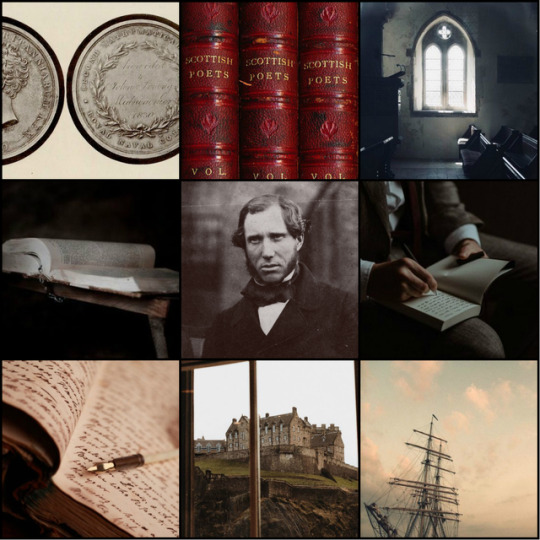
J O H N I R V I N G
(February 8th, 1815 - ??)
“So let us consider that all sorrows are meant by God to give us a distaste to this life, and a greater desire to be removed to that world where there will be no more tears or sorrows, no more partings of dear brothers and friends, but where all will be eternal, fixed, and everlasting.”
John Irving was born on February 18th, 1815, at his family home at No. 106 Princes Street in the New Town area of Edinburgh. His father, also named John, was a Writer to the Signet and a close childhood friend of famous Scottish author, Sir Walter Scott. His mother, Agnes Clerk Hay, was the eldest daughter of Colonel Lewis Hay and could claim ancestry from two well-established Scottish clans. Born to a wealthy and respected family, John—a middle child of six surviving siblings—had a life of great opportunity, but also many personal sorrows and tragedies.
Agnes Irving died at Port Seton in the summer of 1823, when John was eight years old. Growing up in her absence, later biographer Benjamin Bell recalled her as a “very excellent, godly woman” and considered her impact on her son as “doubtless”.
After his mother’s death, John became involved in his studies at the New Academy of Edinburgh, a school established by founders such as Sir Walter Scott with a focus on Classical learning, languages, natural sciences, writing, and arithmetic. The latter three categories were topics at which John would come to excel. Fellow students would recall the young Irving as, “a nice fellow, fond of play, with a good deal of quiet humour, courageous, but very slow to quarrel or take offense”. He concluded his studies before the seven-year term, and instead enrolled at the Royal Naval College in London, thereby beginning his career in the Royal Navy.
Despite a setback of a case of scarlet fever, John excelled at his studies to the extent of winning a silver medal in a mathematics competition during the Midsummer term of 1830. He would keep this medal with him as a personal token for the rest of his life. He went on to join the HMS Cordelia and HMS Fly as part of his Naval education, but it was on the HMS Belvidera where he would come into his own and form several lasting relationships.
On the Belvidera, he met fellow midshipmen William Elphinstone Malcolm (affectionately nicknamed “Elphie” by Irving) and George Kingston. Avid in their Christian faith, the three boys became particularly close. Despite a marked attitude on Irving’s part that was later recalled as a “hot temper and a rather domineering manner”, John kept these friends close for most of his life, and would keep close correspondence long after their group disbanded. He attempted to replicate this sort of group upon joining the HMS Edinburgh in 1833. However, this same faith earned his new group the disparaging nickname of the “Holy Ghost boys”, which Irving commented to William Malcolm in a letter as “horrid to relate”. Despite his difficulty socializing, Irving did document some of his adventures on the Edinburgh, such as climbing Mount Etna in Sicily (the weather conditions of which would scar his upper lip with frostbite).
However, another noted change in personality began to emerge, particularly in conjunction with the loss of his sister-in-law, Isabella, in childbirth. The tone of Irving’s letters began to show a streak of melancholy and a disillusionment with the Royal Navy. He would remark to Malcolm of his loss of interest in things of enjoyment, a detachment from his faith which alarmed him, and a disdain for Navy life. In one particularly scathing letter, he exclaimed, “I am so sick of this ship and everything belonging to it,” before reminiscing about better times on the Belvidera. Another letter saw him referring to himself as “miserable” and “wretched”, and claimed that the only thing he had hope in was the Gospel.
His fortunes, in his opinion, were about to change. In 1837, Irving resigned from the Navy in order to pursue sheep-farming in Australia, accompanied by his youngest brother, David. They were given several thousand pounds by their father and the opportunity to purchase land in New South Wales. At first optimistic about this venture, John soon began to realize that his experiences were not to go as expected. Falling wool prices, severe weather, crime, and illness plagued him, to the point that he was afflicted with a near-fatal case of dysentery that left him bedridden for five weeks. Then, in 1841, John received word that his oldest brother, George, had suddenly died of meningitis. Undoubtedly, this was another weight on an already heavy heart.
By 1843, the faltering economy had drained John of nearly all of his finances, nearly leaving him in debt. Upon recommendation from his father, John left his remaining herds and house to David and rejoined the Royal Navy, boarding onto the HMS Favourite in Sydney and returning home to Scotland.
John arrived home in the midst of an event known as The Disruption, a dramatic schism in the Church of Scotland. Baffled by what he called a “mystery”, especially with his older brother Lewis’ involvement, John characteristically commented to Malcolm that “the Gospel seems in no way concerned in the dispute”. Shortly after, he signed onto the HMS Volage and was immediately promoted to Lieutenant.
His time on the Volage was spent in a patrol of the Irish coast in the midst of a revolt advocating for Irish home rule. Irving made several observations of Irish life and politics while also displaying a change in tone towards his Navy career. By 1843, he was now in belief that he could begin on the path towards a Commandership or a Captaincy, and began looking for opportunities to advance. Near the end of the patrol, he had begun to hear rumors about an Arctic exploration attempt. Quickly gathering recommendations from past captains, he applied for the then-unnamed expedition. He spent a short time on the HMS Excellent in the waiting interim.
Upon being accepted onto the HMS Terror, Irving kept a close correspondence with his sister-in-law, Kate Irving. He included sketches of the modified locomotive engine on Terror as well as observations of personnel and ship life. Again, a tone shift became apparent as he seemed to be excited and optimistic about the Expedition and its members. In particular, he appeared to be most pleased with Captain Francis Crozier, remarking, “I like my skipper very well”. It was evident that he was pleased enough with his situation to make lighthearted jokes at the expense of Sir John Franklin, commenting to Kate that their victualing was so good on Terror that, “you need not think we have been eating our shoes”, in reference to Franklin’s famous nickname of ‘the man who ate his own boots’. Irving concluded his correspondence with a farewell letter, believing it would be some time before he would be able to write to Kate again. He expressed his belief that the Passage would be achieved, sent another sketch of Erebus and Terror anchored in a bay in Greenland, and a small sample of Tripe de Roche lichen. This was the last letter received from him.
Irving was mentioned once on the Victory Point Note later found by searchers, in the second note written on April 25th, 1848, with, “This paper was found by Lt. Irving under the cairn supposed to have been built by Sir James Ross in 1831.”
It wasn’t until the summer of 1879 that any further clues were found to John Irving’s fate. An expeditionary group led by Lieutenant Frederick Schwatka and a group of Inuit discovered an above-ground grave that had been picked apart by animals, but held a relatively intact skeleton. Schwatka and Austrian adventurer Heinrich Klutschak uncovered several pieces of canvas that served as the skeleton’s shroud, as well as pieces of blue fabric denoting a Naval officer’s coat, a section of a folded silk handkerchief, a spyglass, and—most notably—a silver medal laying on a flat rock outside of the grave. Further inspection revealed the medal’s owner—John Irving.
Schwatka decided to repatriate the remains back to Edinburgh. At the time, the remains were the only ones to be returned, owing to Schwatka’s belief that the skeleton had been properly identified. Word was sent to John’s older brother, Alexander, as well as his sister, Mary Scott-Moncrieff. Irving’s remaining family arrived in Edinburgh and held a funeral on January 7th, 1881. The funeral and public procession to Dean Cemetery was well-attended, with Irving’s coffin draped with a Union Jack and topped with a Lieutenant’s hat and saber. A gun salute was fired as pallbearers, all sailors, took him to his final resting place. A grave marker bore an impression of the silver mathematics medal that identified him, as well as an etching of his imagined funeral, an epitaph recalling his fate, and a set of stones recalling his grave on King William Island. The final remark came from the Book of Romans, Chapter 8, Verse 35: “ Who shall separate us from the love of Christ shall tribulation or distress - or famine".
In modern times, the identity of the skeleton buried in Edinburgh would be called into question, and indeed remains a mystery. However, there is no doubt that some part of John Irving was buried on that day in 1881, whether it was his body or his memory. To his family, at least, he found some semblance of peace and was given the rare opportunity to come home.
#franklin expedition#amc the terror#terror blogging#john irving#irving sunday#I'VE BEEN WAITING TO POST THIS ALL WEEK#NOW I'M GONNA GO PASS OUT
359 notes
·
View notes
Text
youtube
Watch the American Climate Leadership Awards 2024 now: https://youtu.be/bWiW4Rp8vF0?feature=shared
The American Climate Leadership Awards 2024 broadcast recording is now available on ecoAmerica's YouTube channel for viewers to be inspired by active climate leaders. Watch to find out which finalist received the $50,000 grand prize! Hosted by Vanessa Hauc and featuring Bill McKibben and Katharine Hayhoe!
#ACLA24#ACLA24Leaders#youtube#youtube video#climate leaders#climate solutions#climate action#climate and environment#climate#climate change#climate and health#climate blog#climate justice#climate news#weather and climate#environmental news#environment#environmental awareness#environment and health#environmental#environmental issues#environmental justice#environment protection#environmental health#Youtube
16K notes
·
View notes